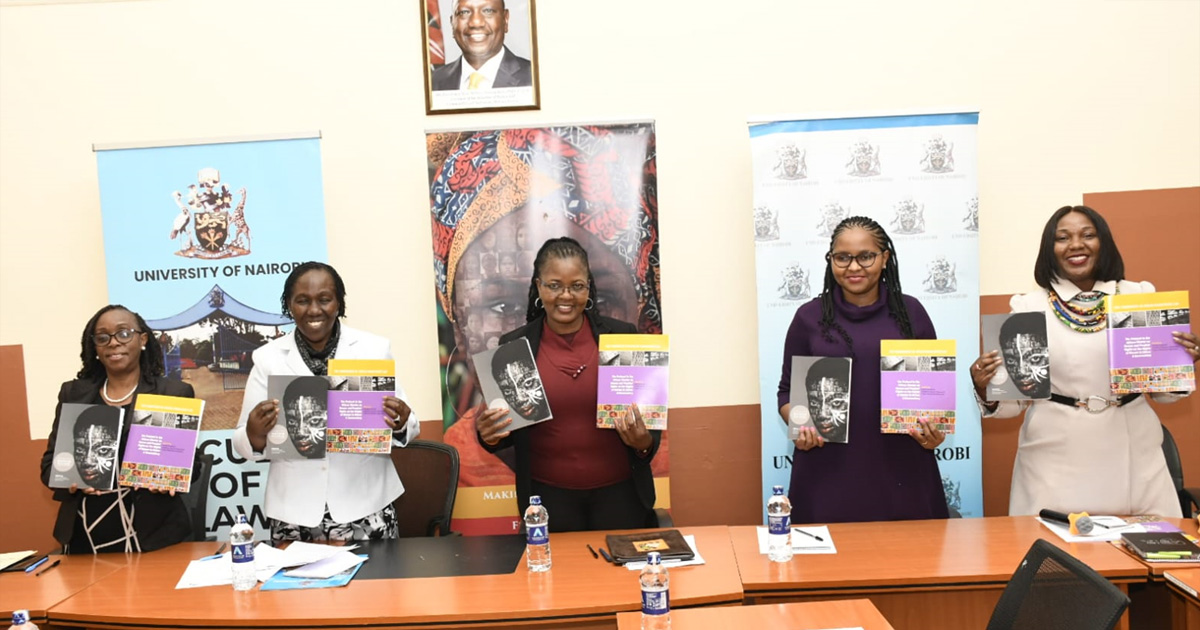
To mark the 20th anniversary of the adoption of the Protocol to the African Charter on Human and Peoples’ Rights on the Rights of Women in Africa (Maputo Protocol), the Centre for Human Rights, University of Pretoria and the Faculty of Law, University of Nairobi launched two books published by the Pretoria University Law Press (PULP). The book launch took place in Nairobi, Kenya on 13 July 2023. The publications were launched in celebration of the Maputo Protocol turning 20 on 11 July 2023.
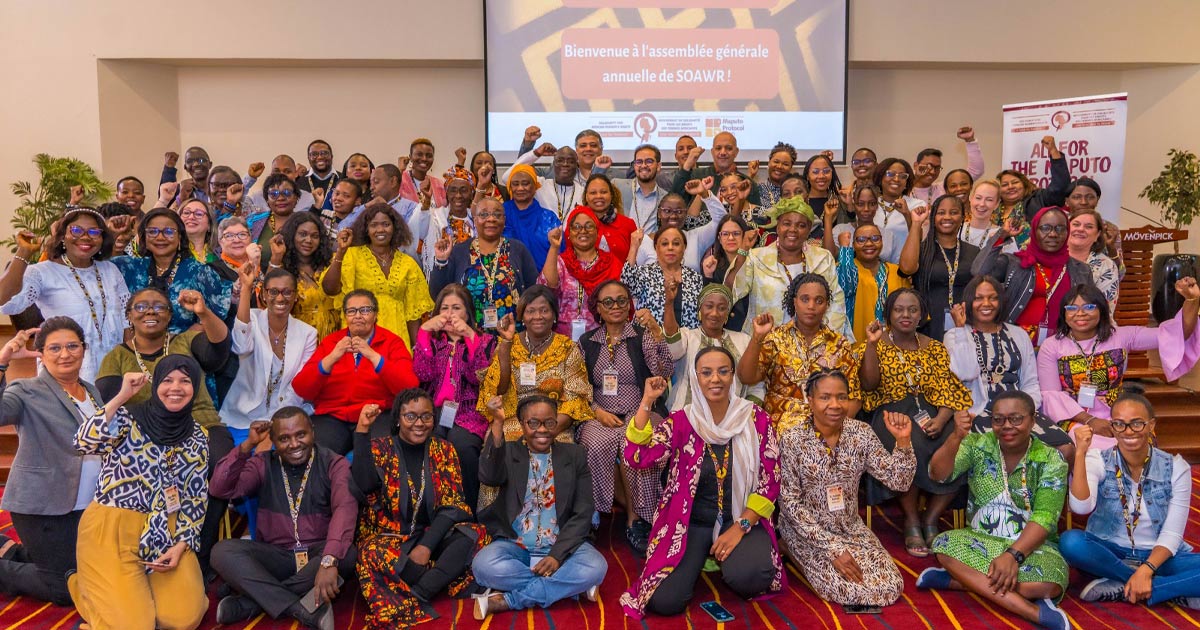
As part of the African women’s movement, the Centre for Human Rights, Faculty of Law, University of Pretoria, and the Solidarity for African Women’s Rights (SOAWR) convened with other women’s rights organisations in Nairobi, Kenya for the Annual General Meeting on 9 July 2023. The SOAWR AGM took place ahead of a two-day celebration of the Maputo Protocol anniversary on 10 and 11 July 2023 in collaboration with the African Union and the Government of Kenya, as the host state. The Centre financially supported representatives of 5 member organisations based in the Southern Africa region to participate in the AGM and the pivotal anniversary celebrations on 10 and 11 July 2023.
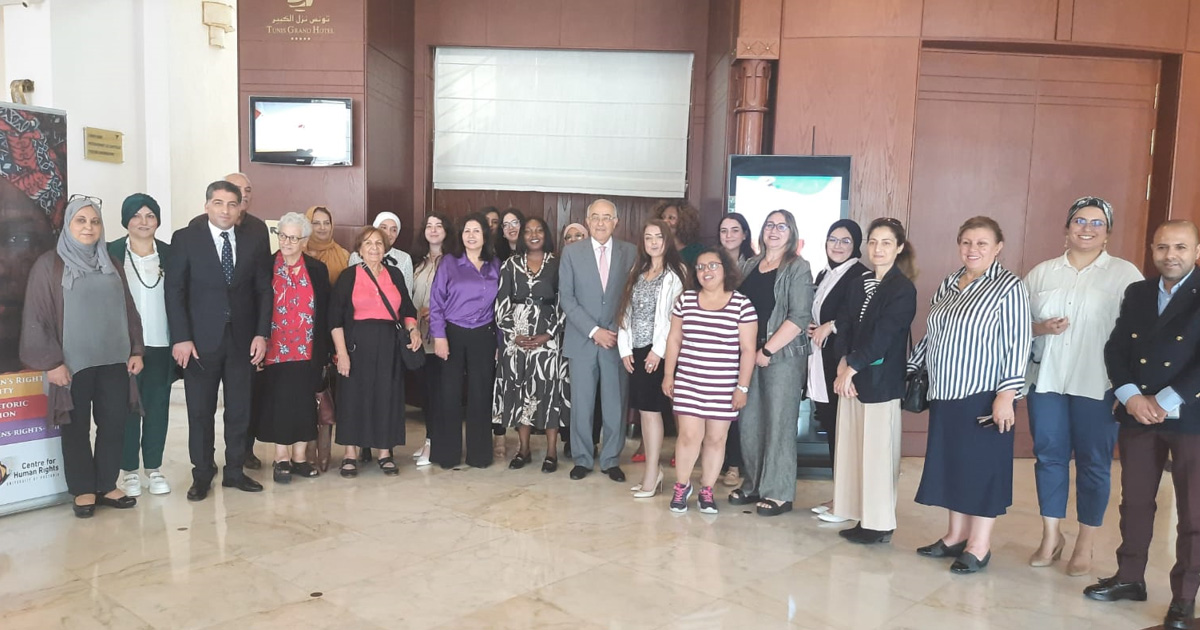
The Centre for Human Rights, Faculty of Law, University of Pretoria (Centre) and KADIRAT, Tunisia hosted a three-day Workshop on State Reporting under the African Charter on Human and Peoples’ Rights (the African Charter) and the Protocol to the African Charter on Human and Peoples’ Rights on the Rights of Women in Africa (the Maputo Protocol) from 15 to 17 June 2023 in Tunis, Tunisia. The overall objective of the workshop was to strengthen Tunisia’s capacity to comply with its state reporting obligations under the African Charter and the Maputo Protocol. The Workshop was also aimed at disseminating information to non-governmental stakeholders on the African human rights system.
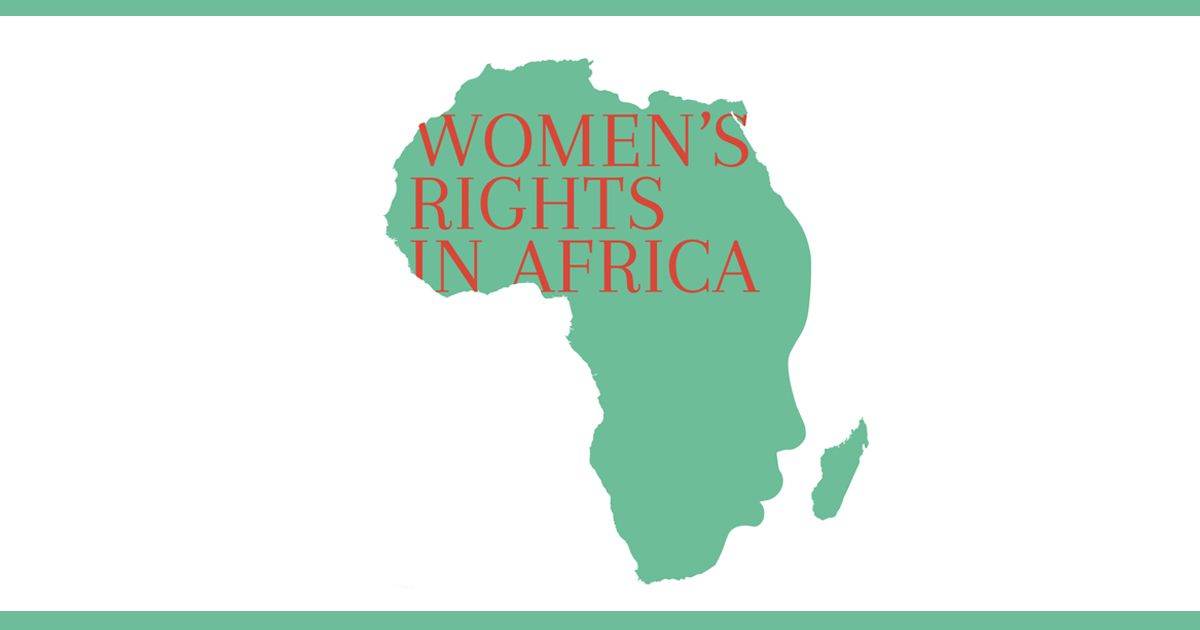
On 15 – 19 May 2023, the Centre for Human Rights, Faculty of Law, University of Pretoria (the Centre) hosted an Advanced Human Rights Course on Women's Rights in Africa.
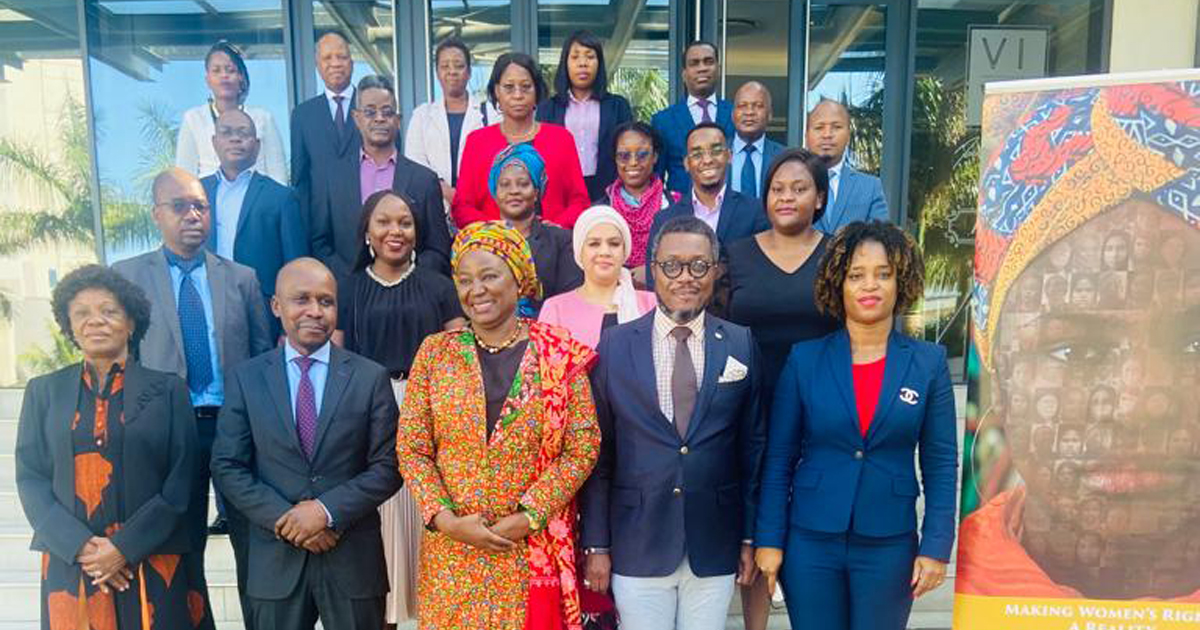
Of 55 member states of the African Union, only six have the Portuguese language as an official language. This presents challenges and opportunities for the African Commission on Human and Peoples’ Rights in its mandate to promote the respect for and monitor the implementation of human rights on the continent. The Centre for Human Rights (the Centre) in collaboration with the African Commission on Human and Peoples’ Rights (African Commission) are hosting a hybrid workshop with five PALOPs on using the state reporting process to monitor the implementation of the rights contained in the African Charter on Human and Peoples’ Rights (African Charter) and the Protocol to the African Charter on Human and Peoples’ Rights on the Rights of Women in Africa (Maputo Protocol).

Adopted on 30 January 2016, the Protocol to the African Charter on Human and Peoples’ Rights on the Rights of Older Persons (Older Persons Protocol) has two of the 15 ratifications needed to bring it into force. Sierra Leone signed the Older Persons Protocol on 14 July 2016 but is yet to ratify it. The Centre for Human Rights, University of Pretoria, had a meeting to strategise on the ratification process in Sierra Leone and to reflect on how it can partner with and support stakeholders in the country to develop a plan towards the speedy ratification of the Older Persons Protocol.
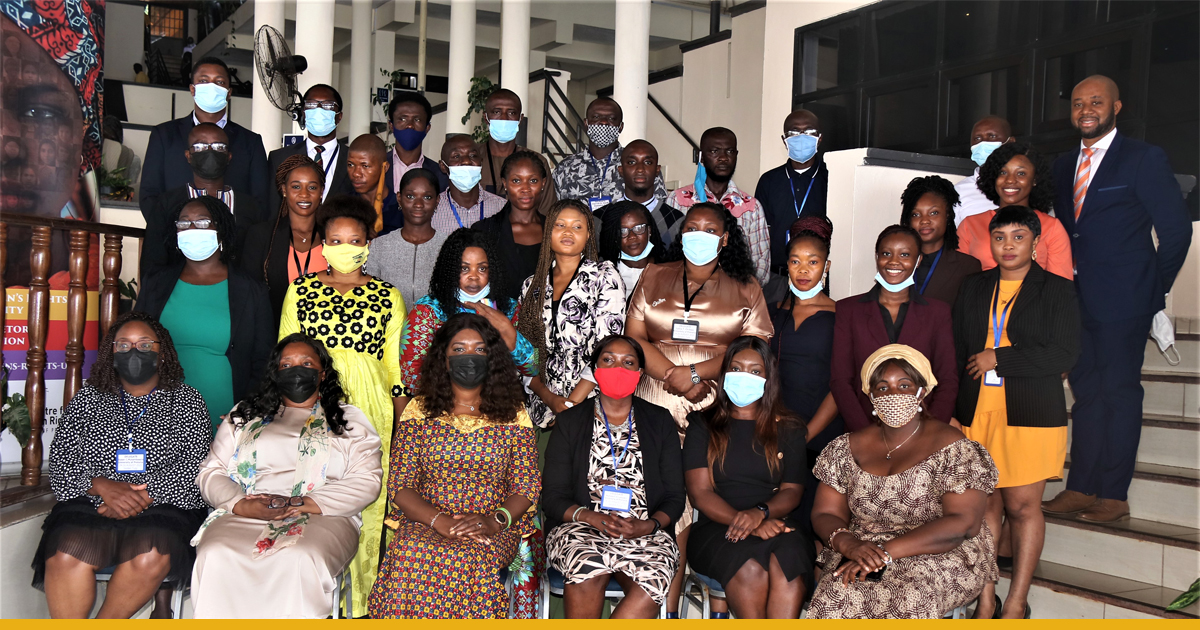
About a month after the African region reflected on progress in realising women’s rights with the adoption of the Protocol to the African Charter on Human and Peoples’ Rights on the Rights of Women in Africa (the Maputo Protocol) 18 years ago, the Centre for Human Rights, University of Pretoria, continued its efforts to support the implementation of the Maputo Protocol by ensuring states’ compliance with their treaty reporting obligations.
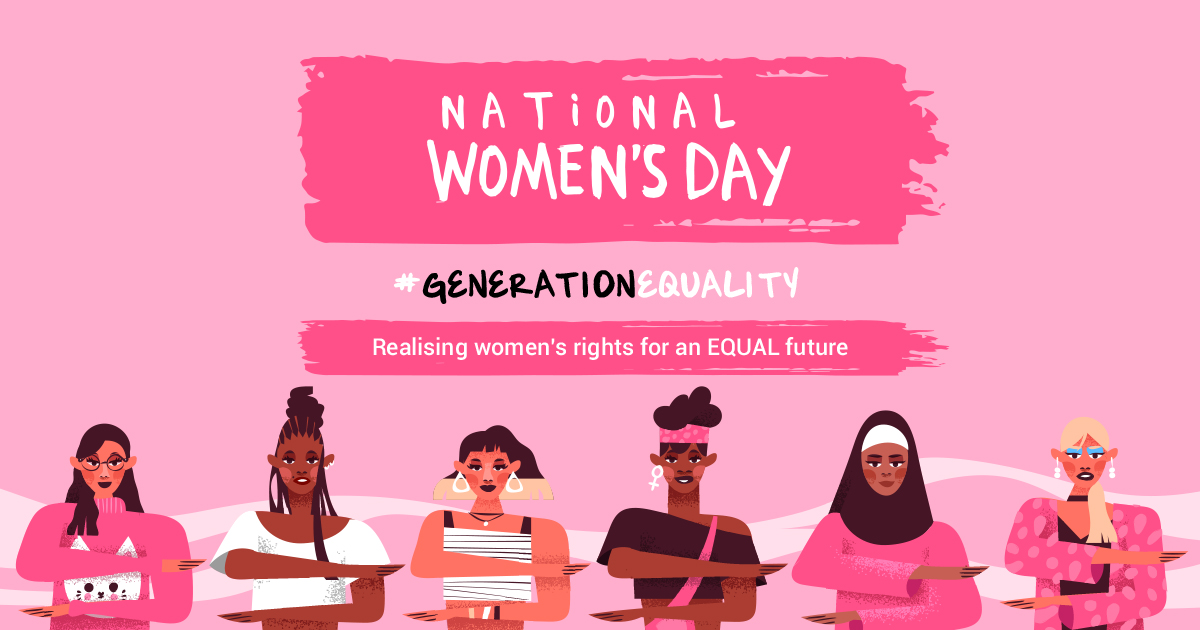
National Women’s Day is commemorated on 9 August every year. Commemorating this Day is an opportunity to honour and celebrate the beauty and strength of South African women and draw attention to issues that women in Africa still face. These issues include gender-based violence (GBV), discrimination and harassment in different areas of life, unequal pay, and a lack of access to education and sexual and reproductive health services for women and girls.
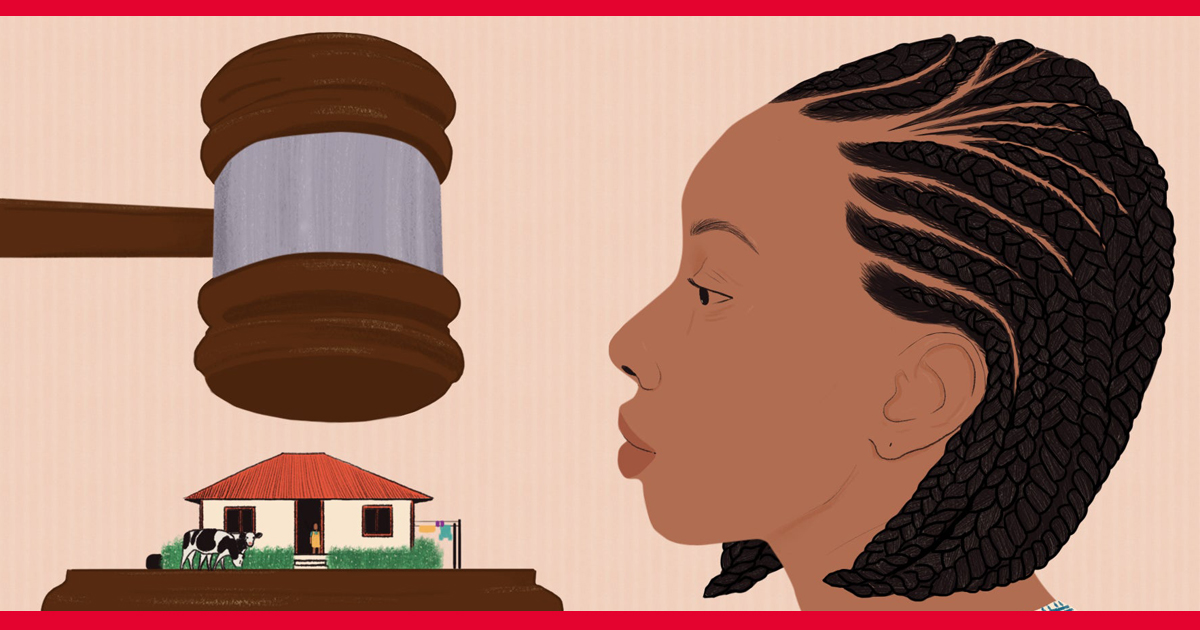
On 22 June 2021, the Centre for Human Rights, University of Pretoria, together with the African Commission on Human and Peoples’ Rights (African Commission), through the mechanism of the Special Rapporteur on the Rights of Women in Africa, IGED-Africa, International Women’s Rights Action Watch (IWRAW) Asia-Pacific, ESCR-Net and GI-ESCR hosted a webinar on marriage and property rights for women in Africa and Asia.
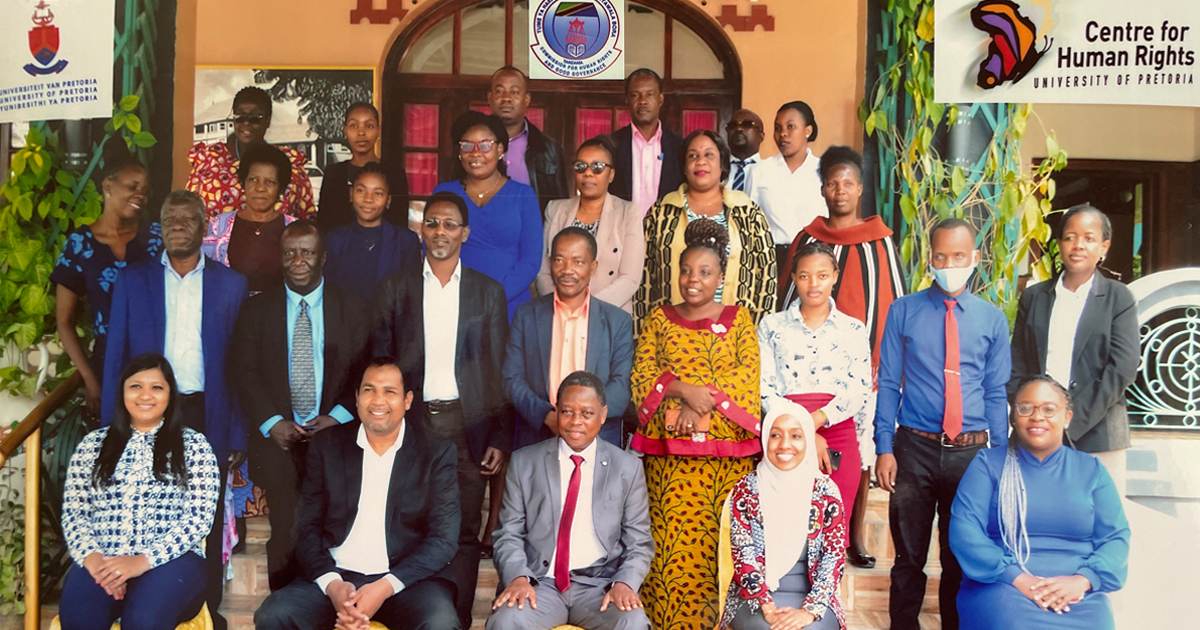
The Centre for Human Rights, University of Pretoria, together with the Commission for Human Rights and Good Governance in Tanzania (CHRAGG), co-hosted a state reporting training workshop on the African Human Rights system from 22 - 24 June 2021, at the New Dodoma Hotel in Dodoma, Tanzania.
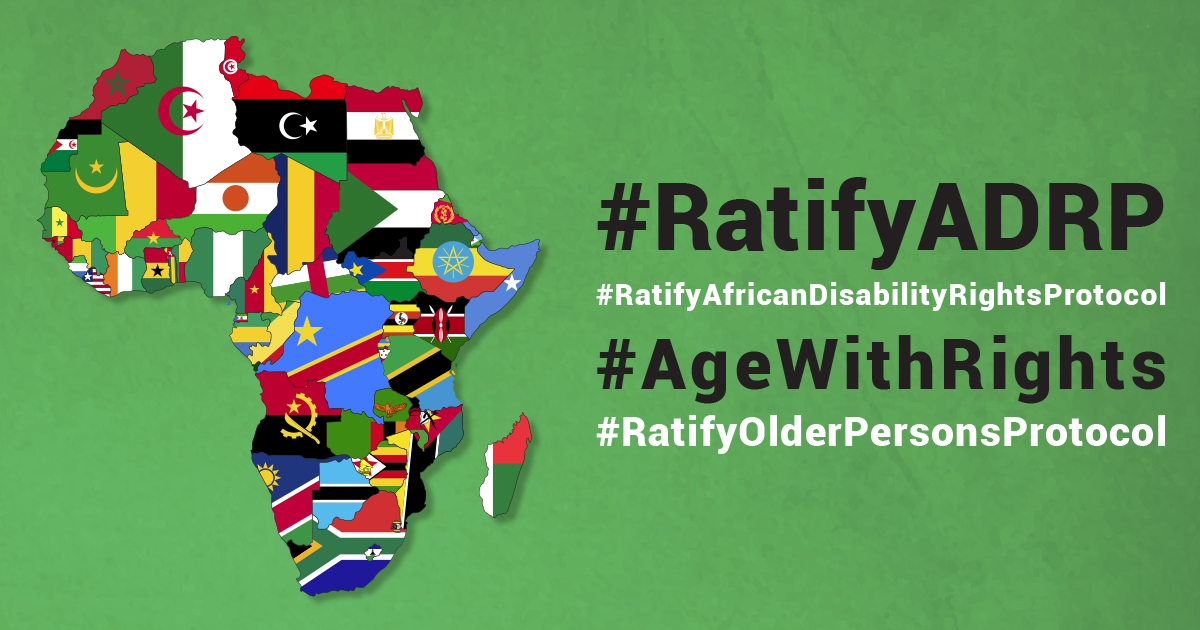
On 28 May 2021, the Centre for Human Rights, University of Pretoria hosted a high-level advocacy meeting on the ratification of the Protocol to the African Charter on Human and Peoples' Rights on the Rights of Older Persons in Africa (Older Persons’ Protocol) and on the Rights of Persons with Disabilities in Africa (Disability Rights Protocol). These two Protocols are not yet in force. They each require fifteen ratifications to ensure their entry into force. So far, only four states to the Charter have ratified the Older Persons’ Protocol, while none have ratified the Disability Rights Protocol. During the meeting, it was revealed that both in Kenya and South Africa cabinet approval for the ratification of the Disability Rights Protocol has been secured recently. The parliamentary processes are ongoing.
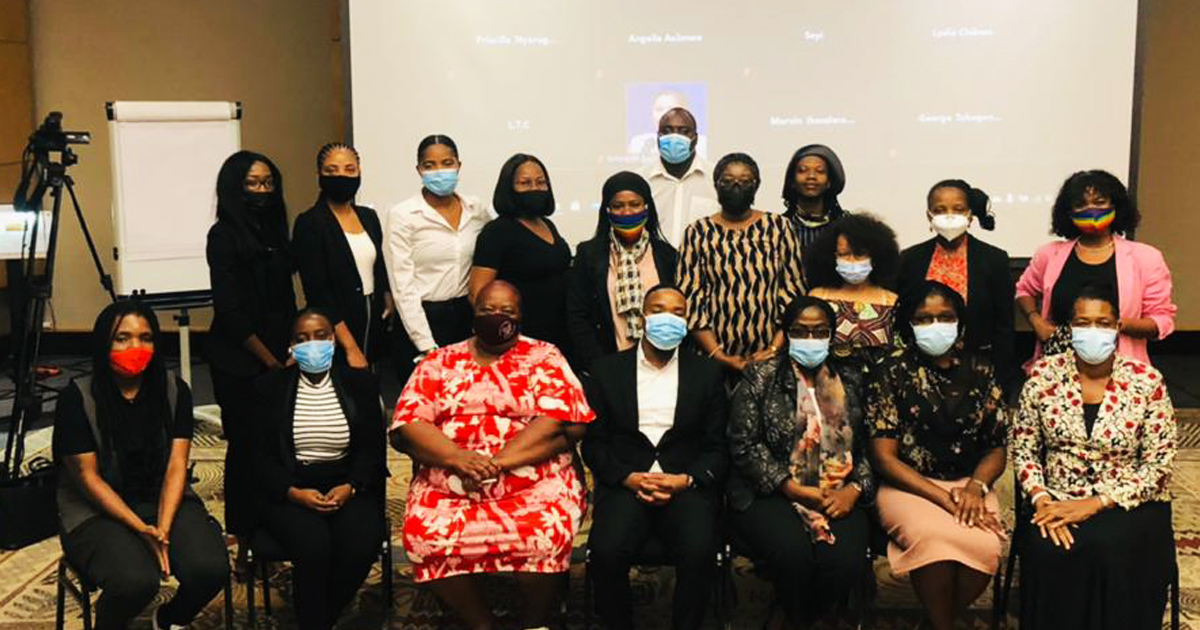
State reporting is an essential component in monitoring the implementation of the Protocol to the African Charter on Human and Peoples’ Rights (African Charter) on the Rights of Women in Africa (Maputo Protocol). It serves a number of crucial functions which includes stock-taking of the concrete steps undertaken by ratifying states towards compliance with treaty obligations, identifying problems and challenges to full implementation of treaty obligations as well as providing an opportunity for state parties to engage in constructive engagement with the African Commission on Human and Peoples’ Rights (African Commission) and to benefit from their recommendations.
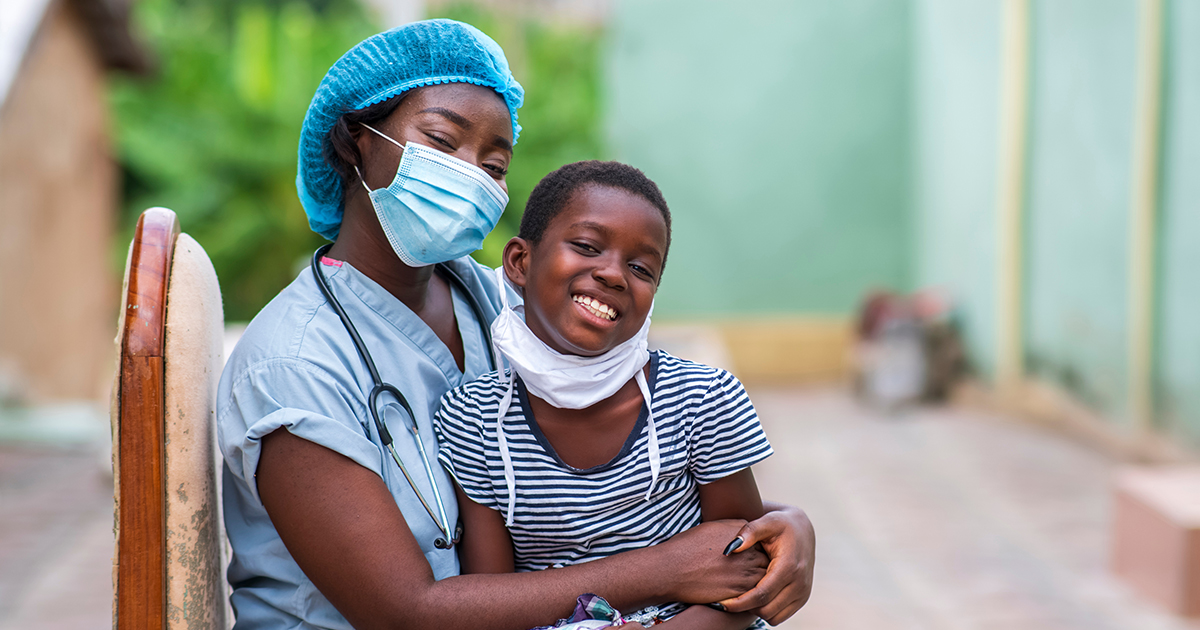
In commemorating International Women's Day (IWD)this year, the Centre for Human Rights, University of Pretoria, seeks to draw attention to the role of women as caregivers, and to challenge the social, legal and economic foundations that cultivate negative perceptions and consequences for women in caregiving roles. The COVID-19 pandemic has been particularly instrumental in bringing into sharp focus women’s caregiving burden globally, both in the work and family context.

The Centre for Human Rights, University of Pretoria, is seeking a Manager for the Women's Rights Unit. The deadline for applications is 1 March 2021.

On 7 and 8 December 2020, the Centre for Human Rights, University of Pretoria, and Tshwaranang Legal Advocacy Centre (TLAC), under the umbrella of the Solidarity for African Women's Rights (SOAWR) Network, held a workshop on the Protocol to the African Charter on Human and Peoples’ Rights on the Rights of Women in Africa (Maputo Protocol) and its efficacy as an advocacy tool for the protection and promotion of women’s rights.

The Womens’ Rights Unit at the Centre for Human Rights, University of Pretoria, in collaboration with the Botswana Labour Migrants Association (BOLAMA), organised a workshop to consider the non-ratification of the Protocol to the African Charter on Human and Peoples’ Rights on the Rights of Women in Africa (Maputo Protocol) by the government of Botswana. The aim of the workshop was to sustain advocacy efforts towards the ratification of the Maputo Protocol. The meeting was held online on 1 December 2020 and Ms Patience Mungwari, Ms Lydia Chibwe and Ms Anthonia Lola Dickson represented the Centre.
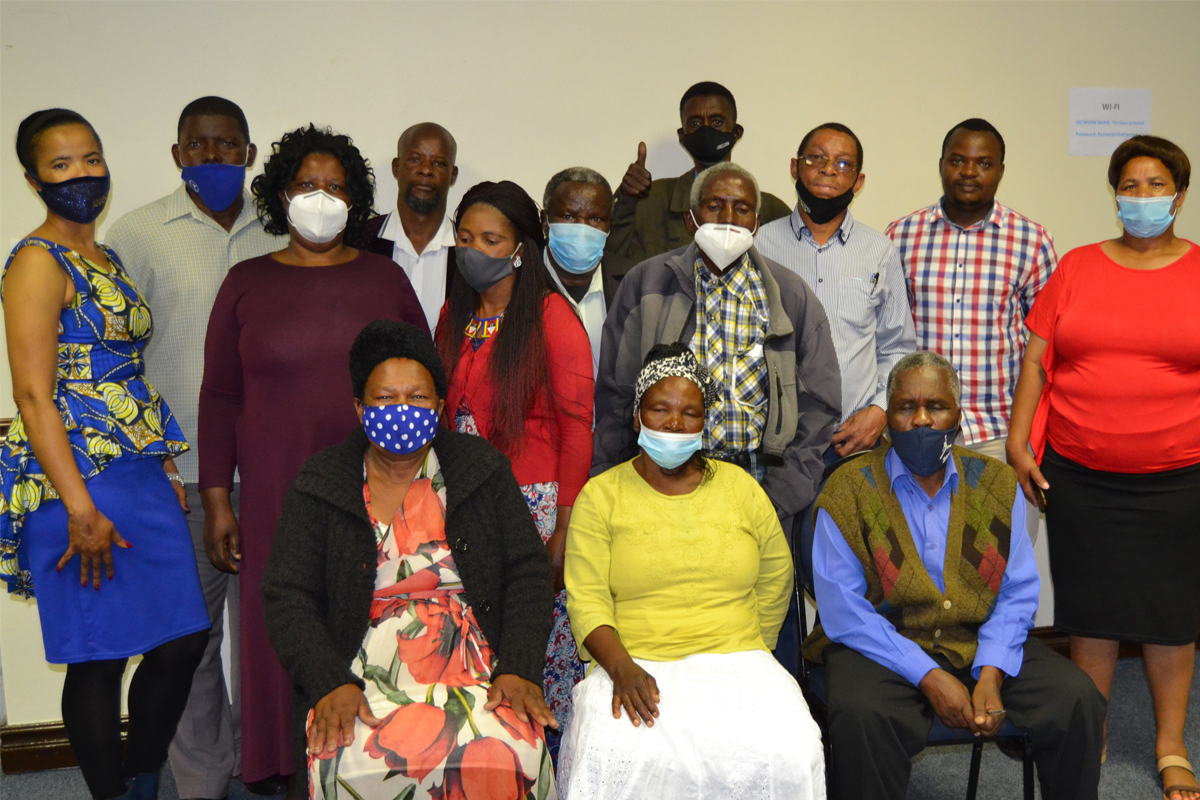
Africa is experiencing the highest increase in the number of older persons’ population. Most of them are living longer with valuable capacities but with vulnerabilities too. Yet older person’s rights are neither recognised nor valued, and often suffer from abuse, assaults and even murder at the hands of those who should support and protect them. Older persons are often accused of witchcraft, blamed for misfortunes such as sudden deaths, HIV/AIDS, traffic accidents and even the weather. They are denied opportunities for employment, have restricted access to land and property, and lack adequate legal protection. Older women in particular bear more risks due to the intersectionality of their age as well as other aspects such as gender, disability and poverty. This is due to the lack of policies or legal frameworks that can protect the rights of older people in the majority of African countries.
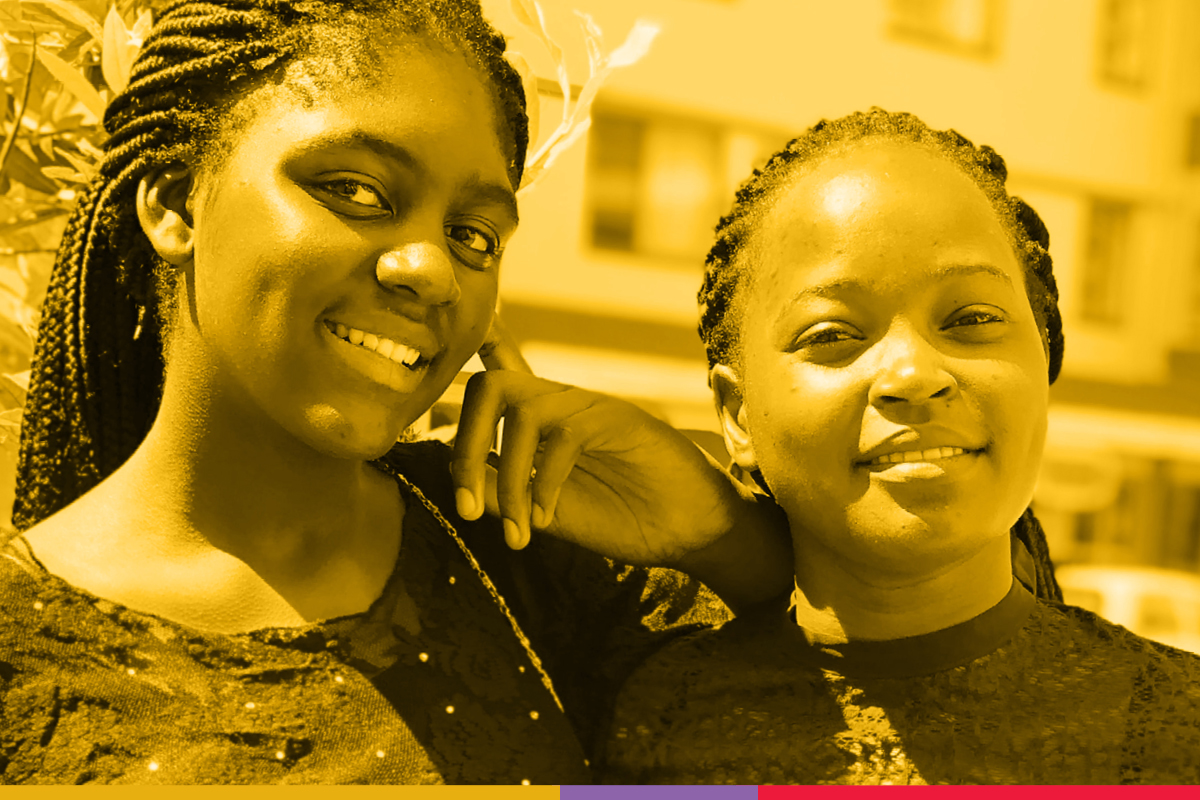
The Centre for Human Rights, University of Pretoria, cordially invites you to a webinar to assess the status of implementation of the Maputo Protocol and submission of state reports to the African Commission on Human and Peoples’ Rights.
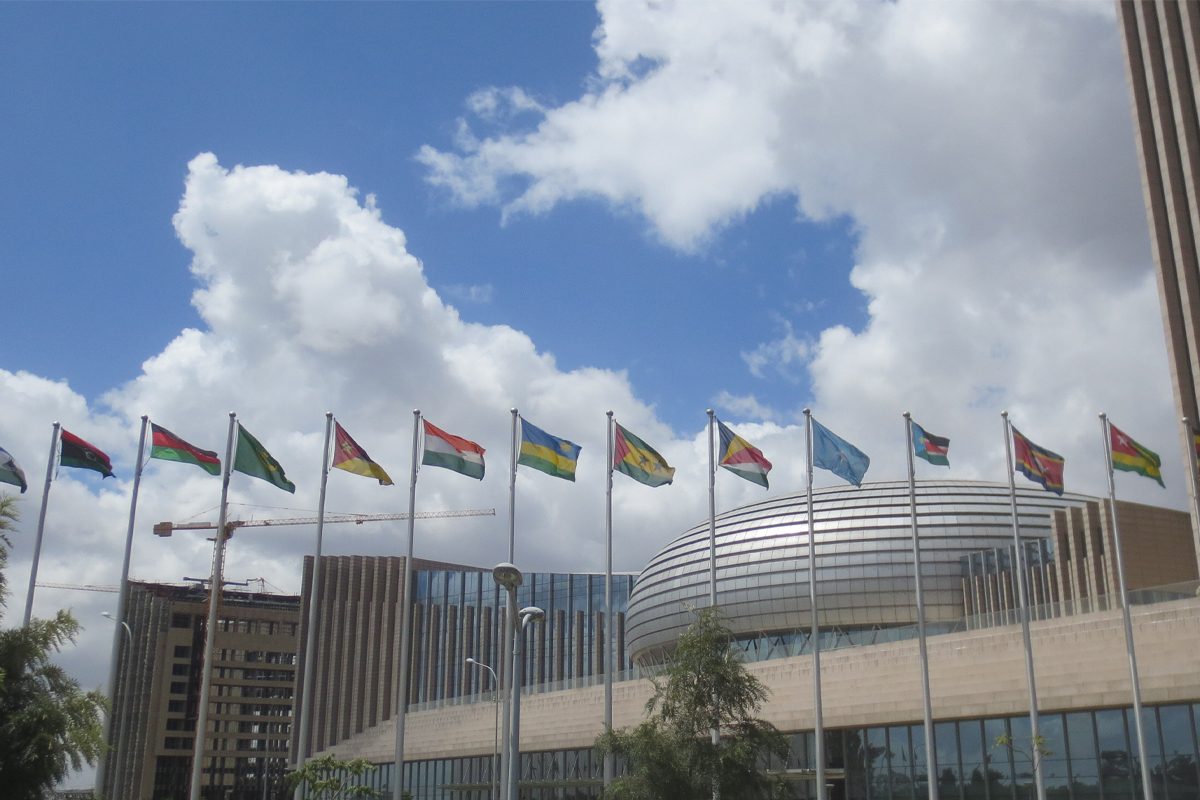
The Centre for Human Rights, Equality Now and International Commission of Jurists (Kenya Chapter) have drafted Shadow Reporting Guidelines in response to Resolution 436 by the African Commission on Human and Peoples' Rights. The resolution recognises the need to have a set of guidelines to guide non-state actors to submit appropriate shadow reports to the Commission. Please take a moment to go through the draft guidelines and fill out the accompanying questionnaire which will assist us to improve the draft guidelines.
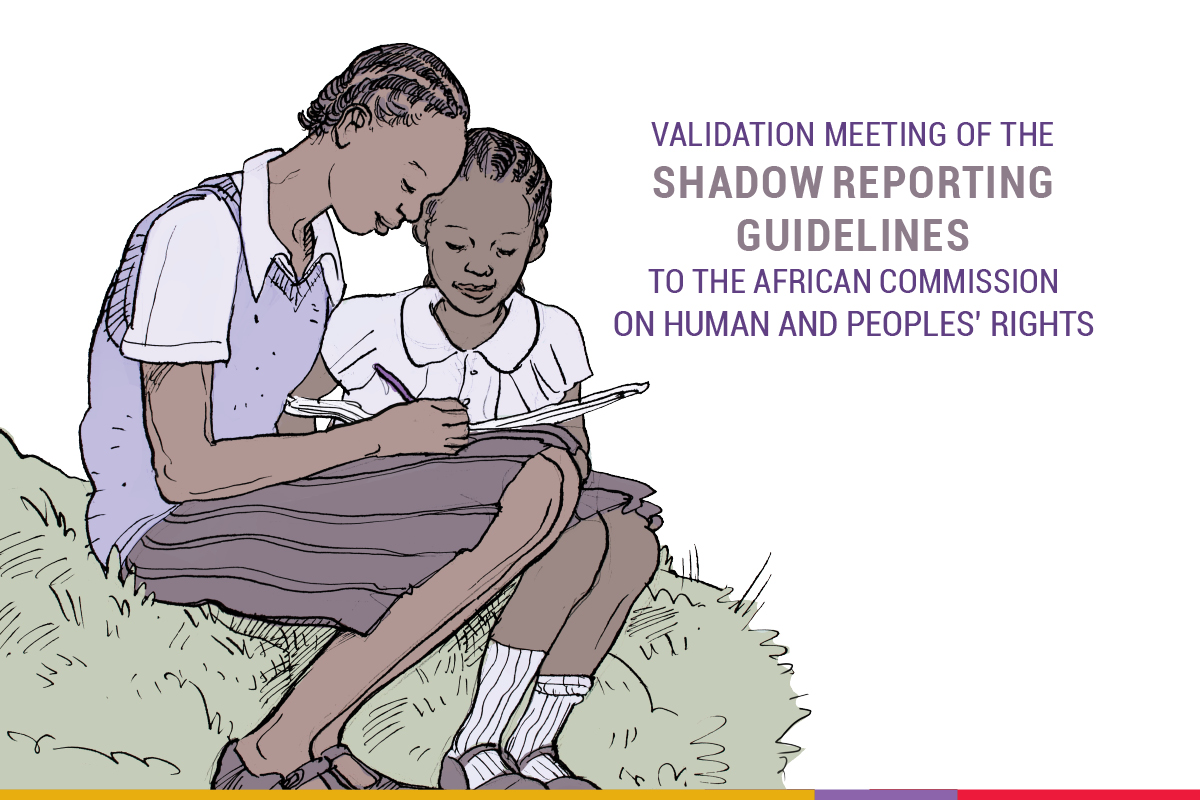
On 1 October 2020, the Women’s Rights Unit at the Centre for Human Rights, Faculty of Law, University for Pretoria, in partnership with International Commission of Jurists (Kenya) and Equality Now, conducted a webinar to garner the views of civil society organisations on the draft Shadow Reporting Guidelines they have developed.
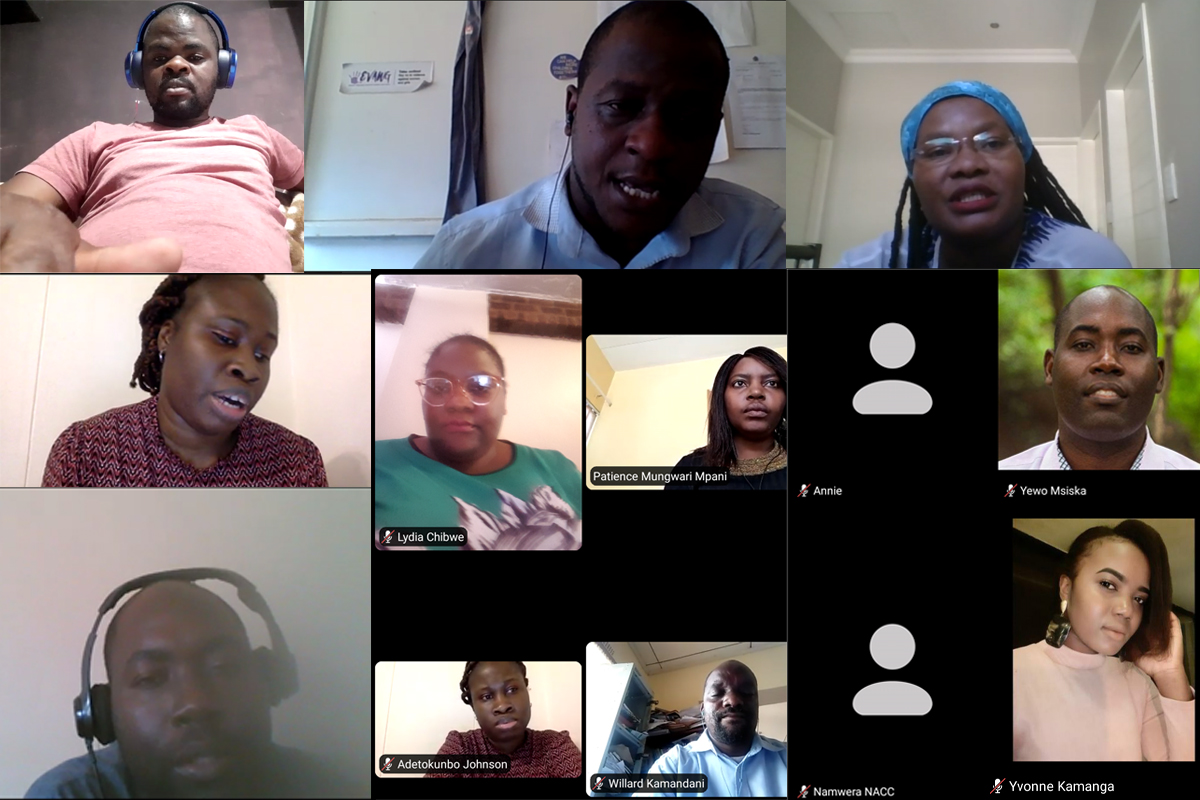
The Centre for Human Rights, Faculty of Law, University of Pretoria and the Tshwaranang Legal Advocacy Centre (TLAC), under the umbrella of the Solidarity for African Women's Rights (SOAWR) Network, held a three-day virtual workshop from 28 to 30 September 2020 on the Protocol to the African Charter on Human and Peoples’ Rights on the Rights of Women in Africa (Maputo Protocol) and shadow reporting. The aim of the workshop was to increase the number of shadow reports submitted to the African Commission on Human and Peoples’ Rights (African Commission) and to encourage a robust interaction of CSOs with the African Commission to effectively monitor the implementation of the Maputo Protocol.
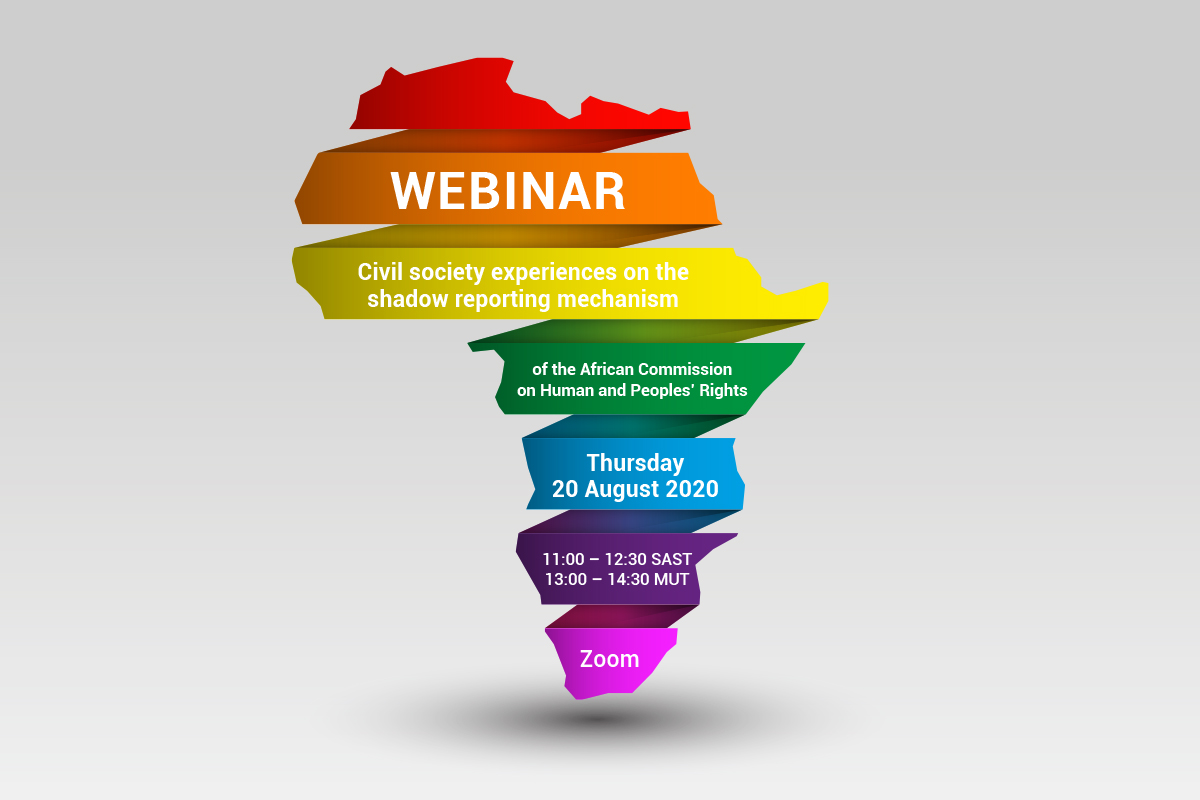
The Centre for Human Rights, University of Pretoria, the Human Rights Institute of South Africa, DITSHWANELO - The Botswana Centre for Human Rights and the Global Rainbow Foundation (Mauritius) cordially invite you to a webinar on civil society experiences on the shadow reporting mechanism of the African Commission on Human and Peoples’ Rights.
The webinar provides the opportunity to learn about the experiences of civil society organisations in using the shadow report mechanism for promoting human rights at national levels, especially in the absence of civil society reporting guidelines on shadow reporting to the African Commission.

(Please note that this is a re-advertisement for some of the countries from the initial call if you have applied previously you need not reapply)
The Centre for Human Rights (the Centre) has previously published research on the impact of the African Charter on Human and Peoples’ Rights (The African Charter) as well as the Protocol to the African Charter on Human and Peoples’ Rights on the Rights of Women in Africa (Maputo Protocol). The research was in the form of two editions of a publication, The Impact of the African Charter and the Maputo Protocol in selected African states published in 2012 and 2016 respectively. The Centre is building on this work through a new publication focusing solely on the impact of the Maputo Protocol. The publication is meant to be a continuous body of research that looks at how member states have incorporated the instruments in their jurisdictions, how they have influenced their policy-making and judicial decisions.
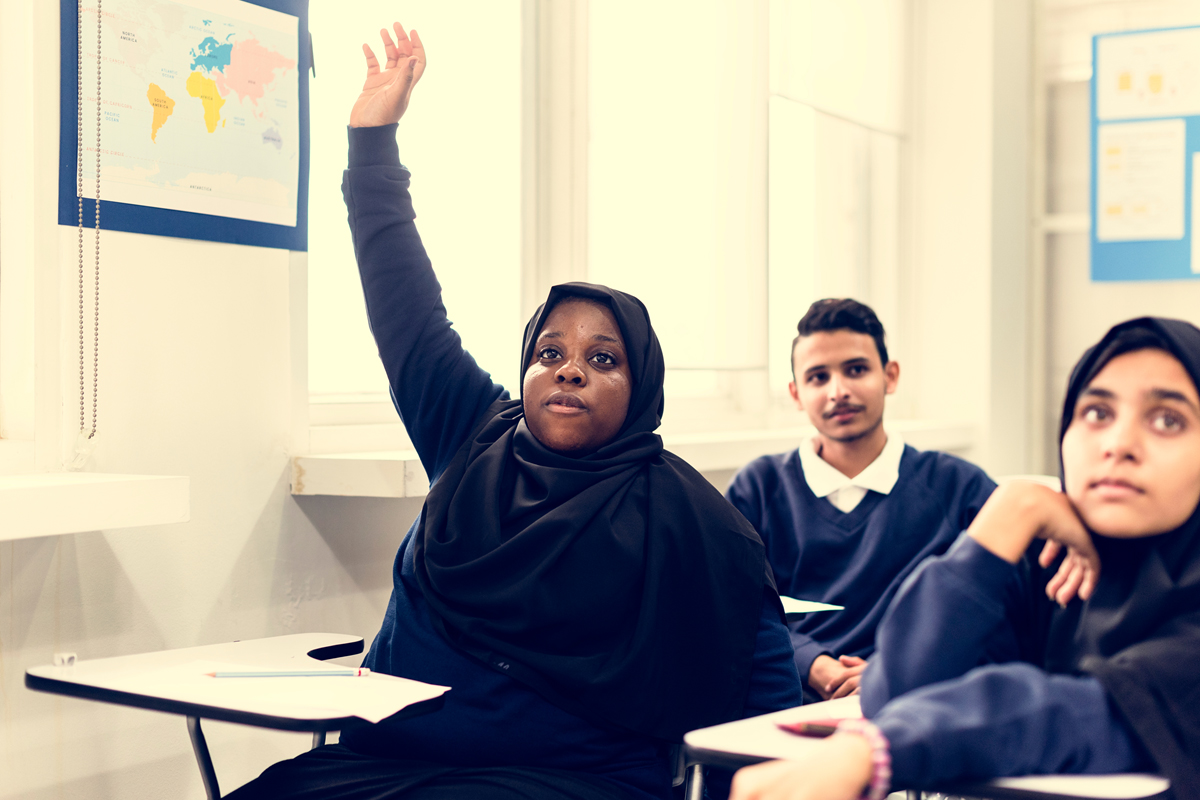
(Op-Ed by Women's Rights Unit)
Youth Day in South Africa commemorates the Soweto youth uprising of 16 June 1976.[1] It is the day that many black students went on a protest rally against an official order which made Afrikaans compulsory in black township schools throughout the country.[2] The day is celebrated in order to recognize the role of the youth in the liberation of South Africa from the Apartheid regime.[3] On this basis, the African Union designated 16 June as the Day of the African Child. This year, Africa on this day commemorates the adoption, 30 years ago, of the AU’s main human rights treaty, the African Charter on the Rights and Welfare of the Child. As we at the Centre for Human Rights, University of Pretoria, remember the past, we also draw attention to the challenges that the present COVID-19 crisis presents to the youth particularly within educational settings.
Covid-19 and the impacts of concomitant government regulations on women
In conversation with Ms Patience Mungwari
“The pandemic has travelled along the fault lines of social injustice to really expose some of the weaknesses in our governance systems”.
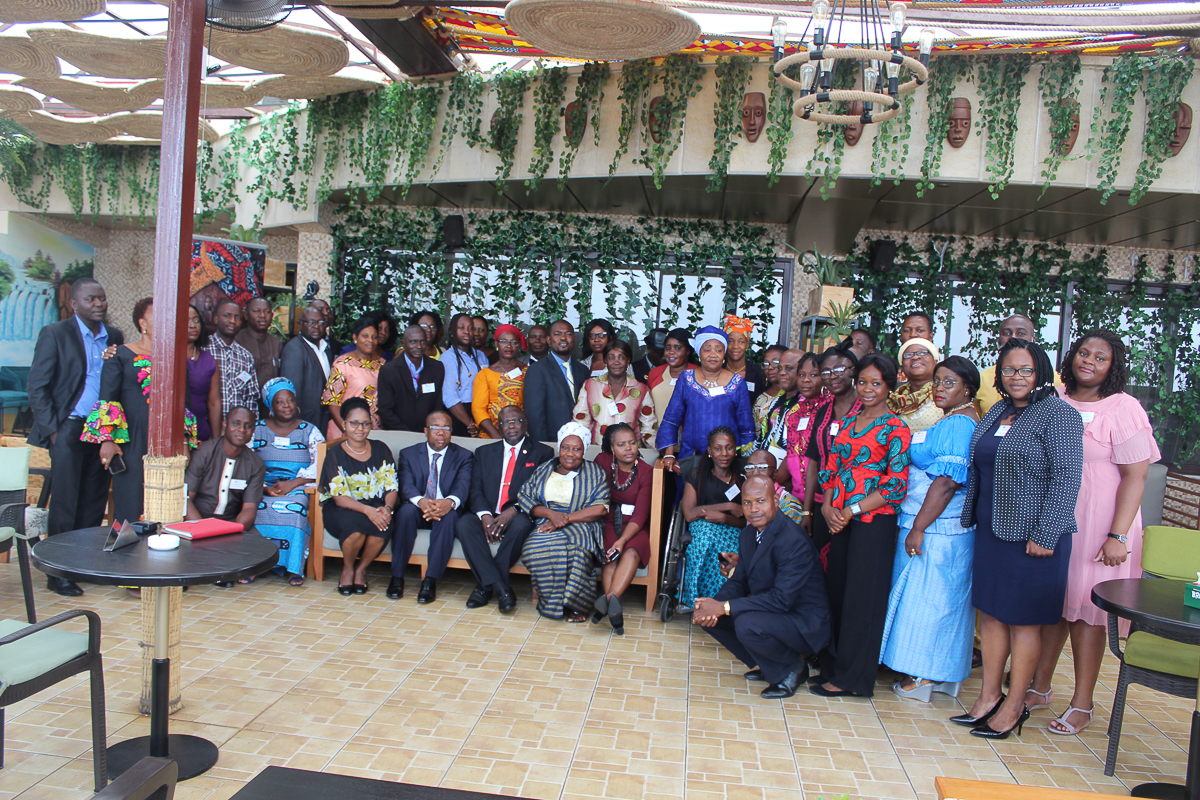
As a country previously ravaged by a protracted civil war that killed approximately 150 000 people and left behind 200 000 refugees, Liberia is rising from the ashes of its past. In addition, it has had to deal with the Ebola virus that also wiped out thousands more from its population, yet the country continues to strive to improve its human rights record. This was demonstrated by the commitment that the government of Liberia has made to the drafting of a state party report to the African Commission on Human and Peoples’ Rights (African Commission) under the African Charter on Human and Peoples’ Rights (African Charter) and the Protocol to the African Charter on Human and Peoples’ Rights on the Rights of Women in Africa (Maputo Protocol).
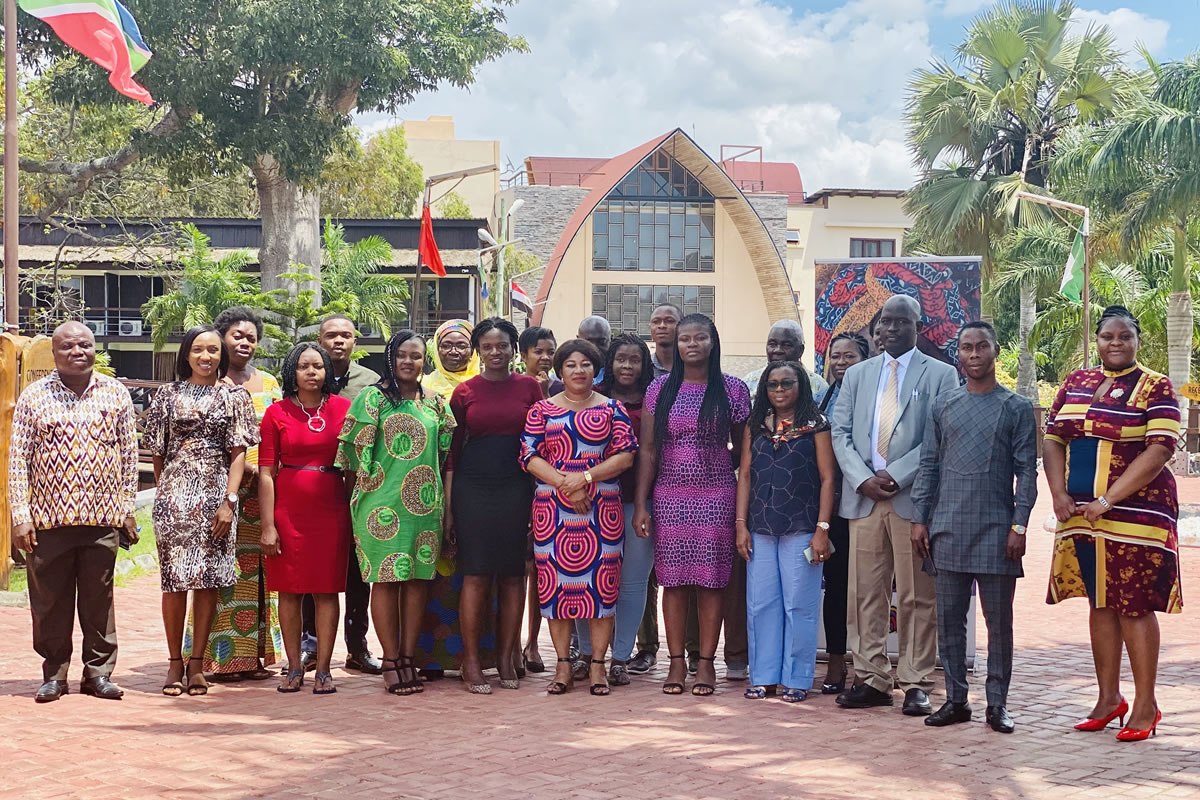
The Women’s Rights Unit at the Centre for Human Rights, University of Pretoria, in collaboration with Moremi Initiative for Women’s Leadership in Africa, a non-profit organisation in Africa, conducted a state reporting workshop on the African Charter on Human and Peoples Rights (African Charter) and the Protocol to the African Charter on Human and Peoples Rights on the Rights of women in Africa (Maputo Protocol). The meeting took place at Aqua Safari Resort, Ghana from 9 to 11 October 2019.
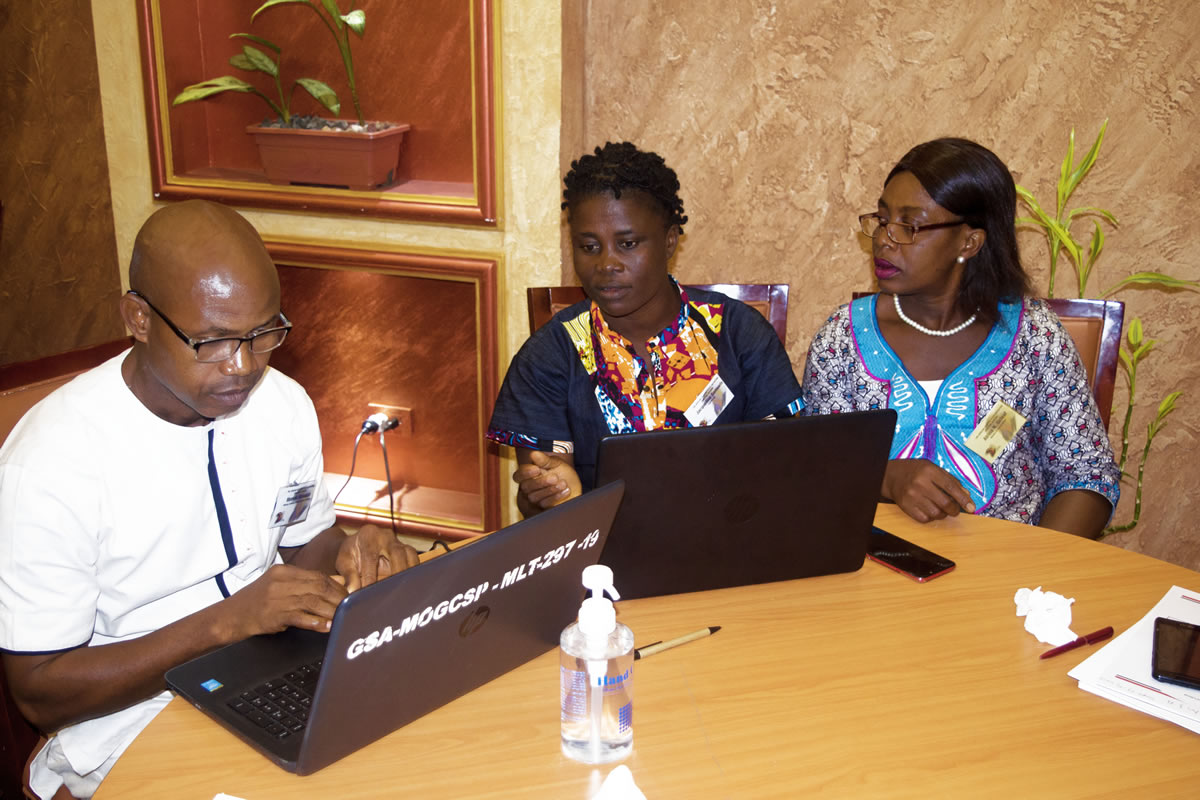
The African Charter on Human and Peoples’ Rights (African Charter) is a powerful human rights response to violations and occurrences across the continent. Such human rights violations include the outbreaks of conflicts and civil wars in countries such as Liberia. The Republic of Liberia ratified the African Charter in 1982 and its supplement instrument – The Protocol to the African Charter on Human and Peoples Rights on the Rights of Women in Africa (Maputo Protocol) in 2007.
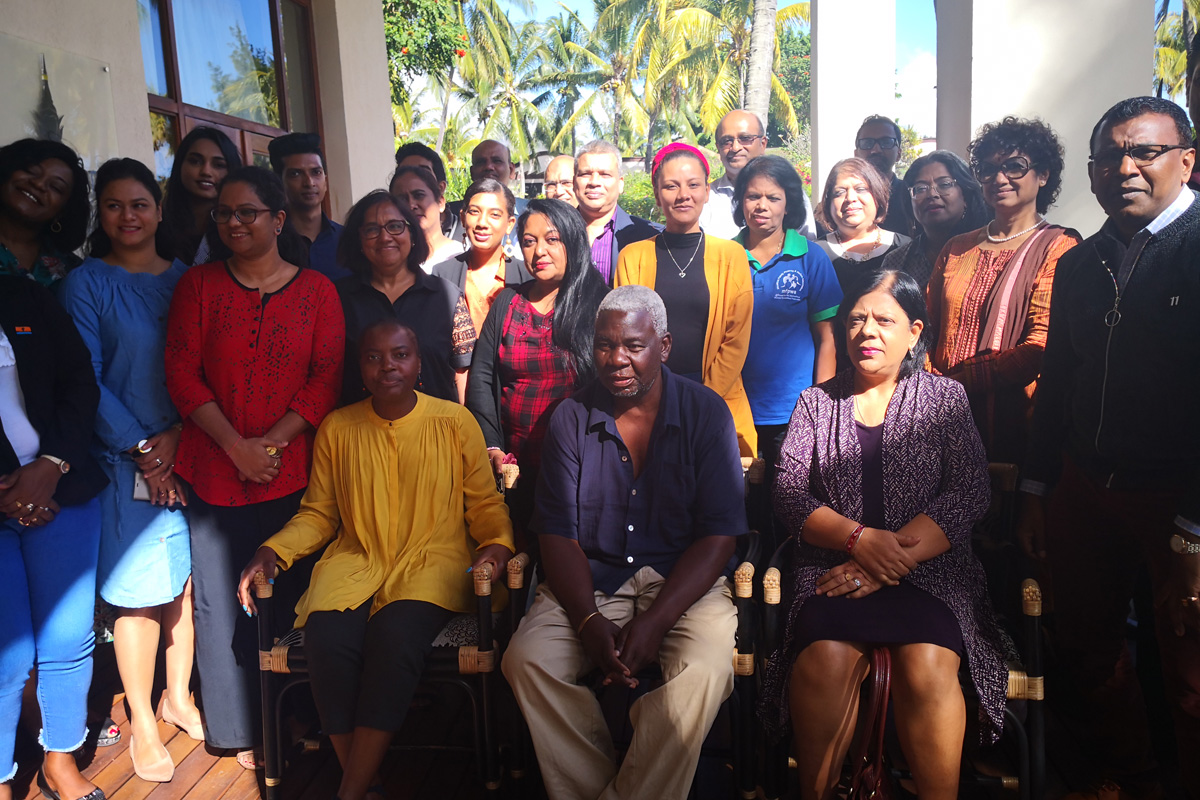
In June 2017, Mauritius ratified the Protocol to the African Charter on Human and Peoples’ Rights on the Rights of Women in Africa (Maputo Protocol). In accordance with Article 26 (1) of the Maputo Protocol, the country has to submit its initial report at the 65th Session of the African Commission in October 2019.
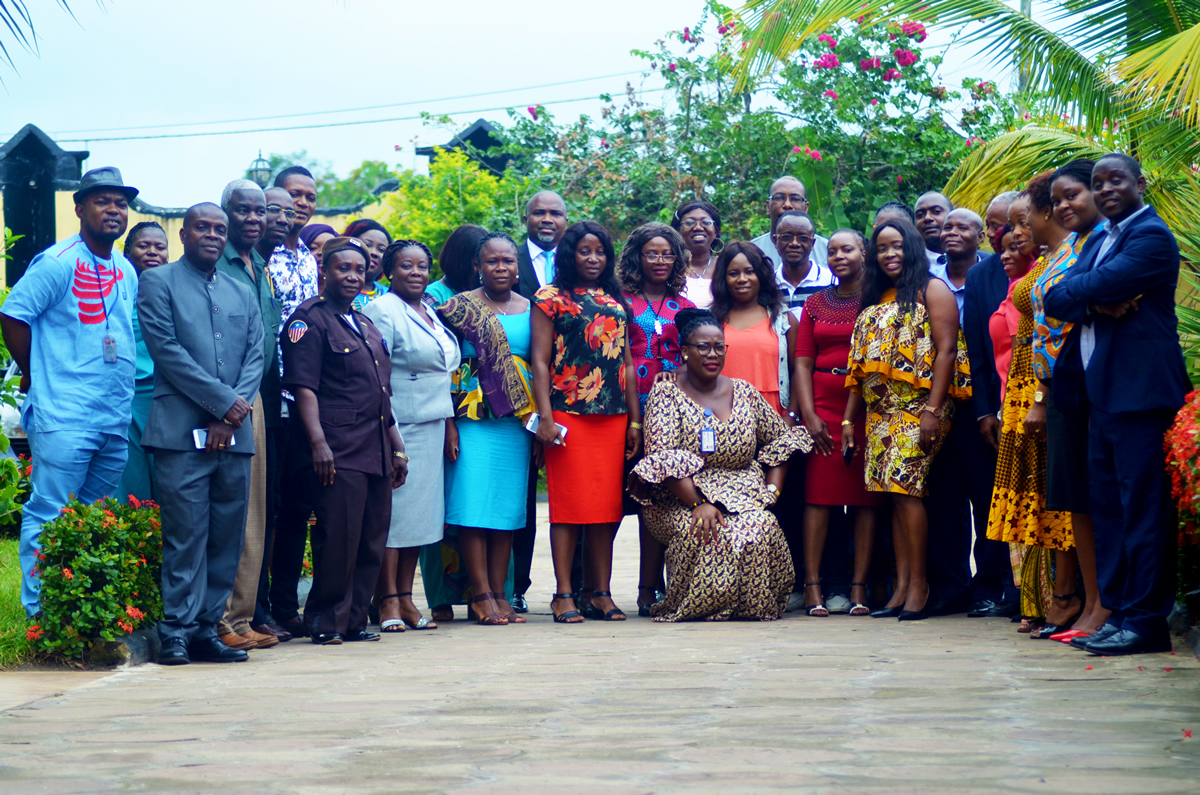
Liberia is one of the poorest countries in the world, and its economy is extremely underdeveloped, largely due to the First Liberian Civil War in 1989-96. The World Bank’s recent information on the poverty rate in Liberia indicates that around 63% of the country lives on less than $1.90 per day. The alarming poverty rate in Liberia cripples growth and exacerbates other issues such as poor infrastructure, inadequate human and financial resources which are ubiquitous in the country. These challenges affect the delivery of essential services such as health, education, and other developmental programmes. In addition, the lack of both financial and human resources has hampered the country’s ability to meet its reporting obligations to the African Commission on Human and Peoples Rights (African Commission).
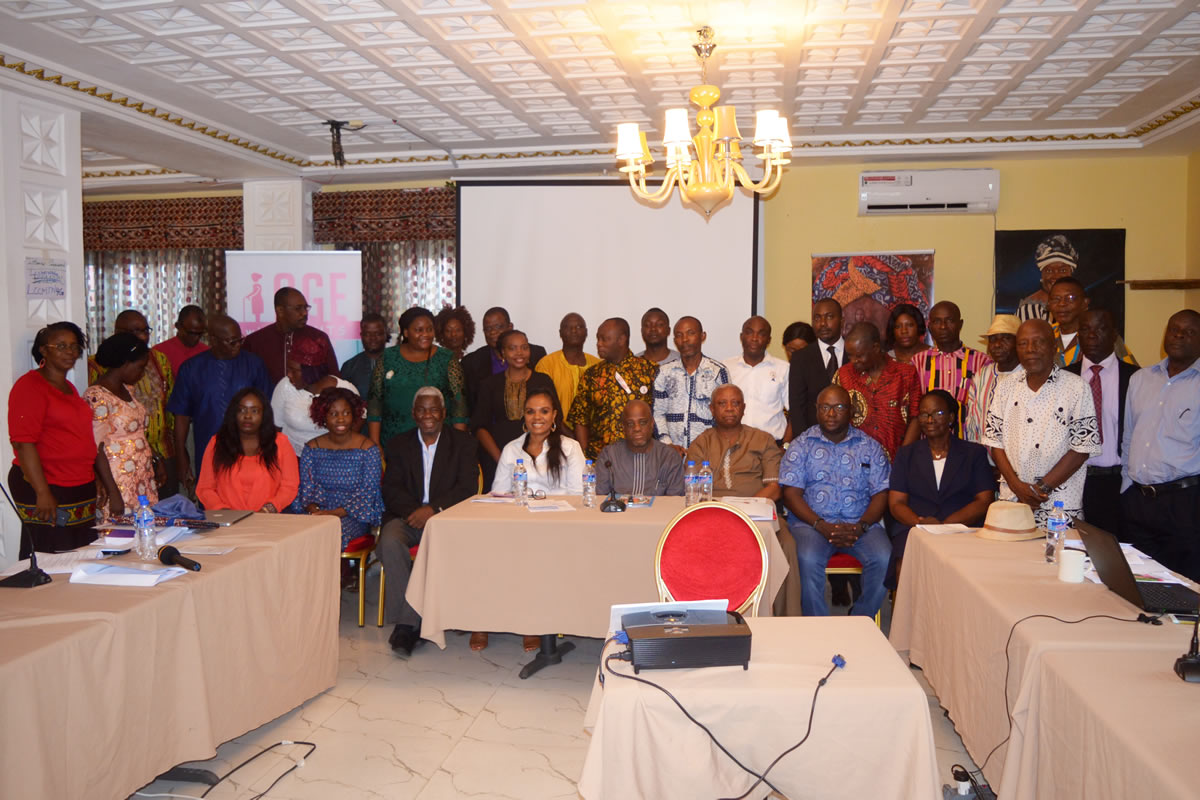
On 6 June 2019, the Centre for Human Rights, University of Pretoria, held an advocacy meeting on the ratification of the Protocol to the African Charter on Human and Peoples Rights on the Rights of Older Persons in Africa (Older Persons Protocol) in Liberia. The event was held in collaboration with HelpAge International, the Global Alliance, the Ministry of Justice and the Ministry of Gender to sensitise Liberia on the Older Persons Protocol and urge them to ratify it. The meeting was held at the Golden Key Hotel, Monrovia. This forms part of the Centre’s ongoing #AgeWithRights campaignto enhance the protection of older persons, focusing specifically on the rights of older women.
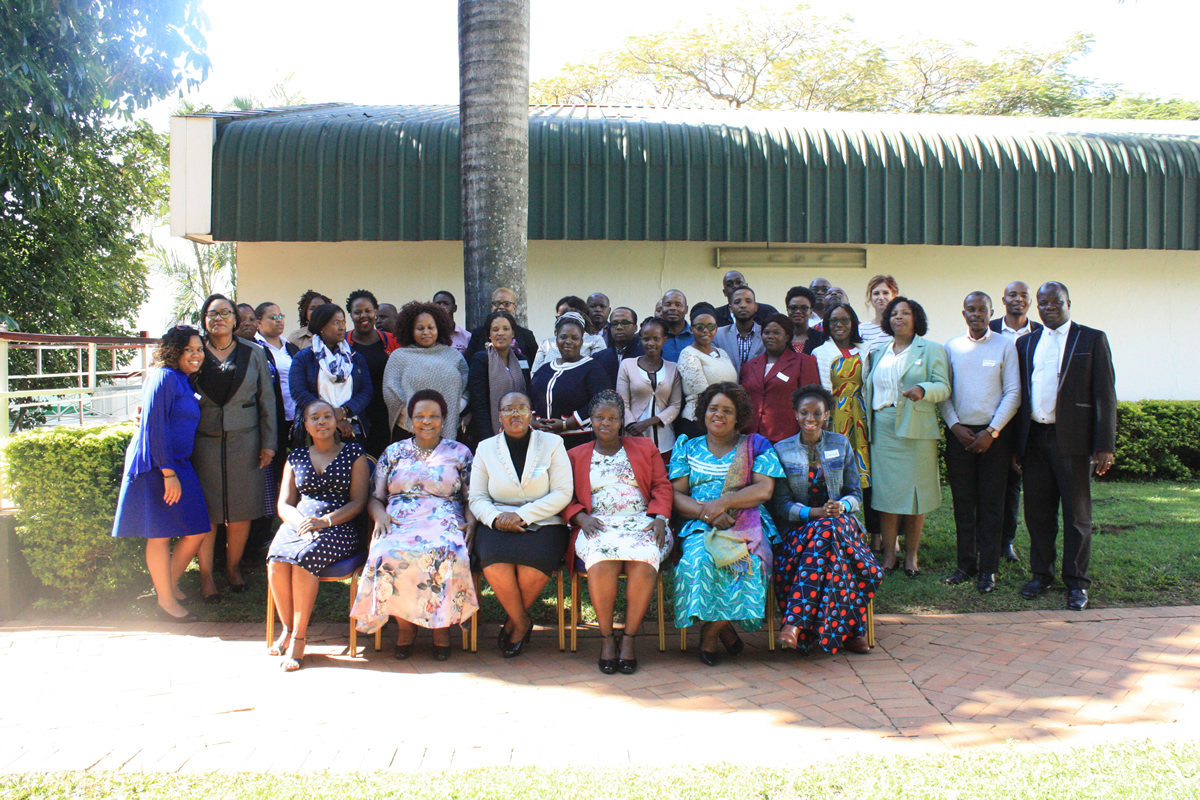
The Women's Rights Unit at the Centre for Human Rights, University of Pretoria, coordinated a 4-day state reporting workshop from 26 to 30 May 2019 in the Kingdom of Eswatini. The aim of the workshop was to draft the State Party Report to the African Commission on Human and Peoples Rights (African Commission). The report is in two parts, with part A focusing on the African Charter on Human and Peoples’ Rights (African Charter) and part B on the Protocol to the African Charter on Human and Peoples’ Rights on the Rights of Women in Africa (Maputo Protocol). The meeting was hosted by the Ministry of Justice in Mambane, Eswatini in collaboration with the Centre for Human Rights.
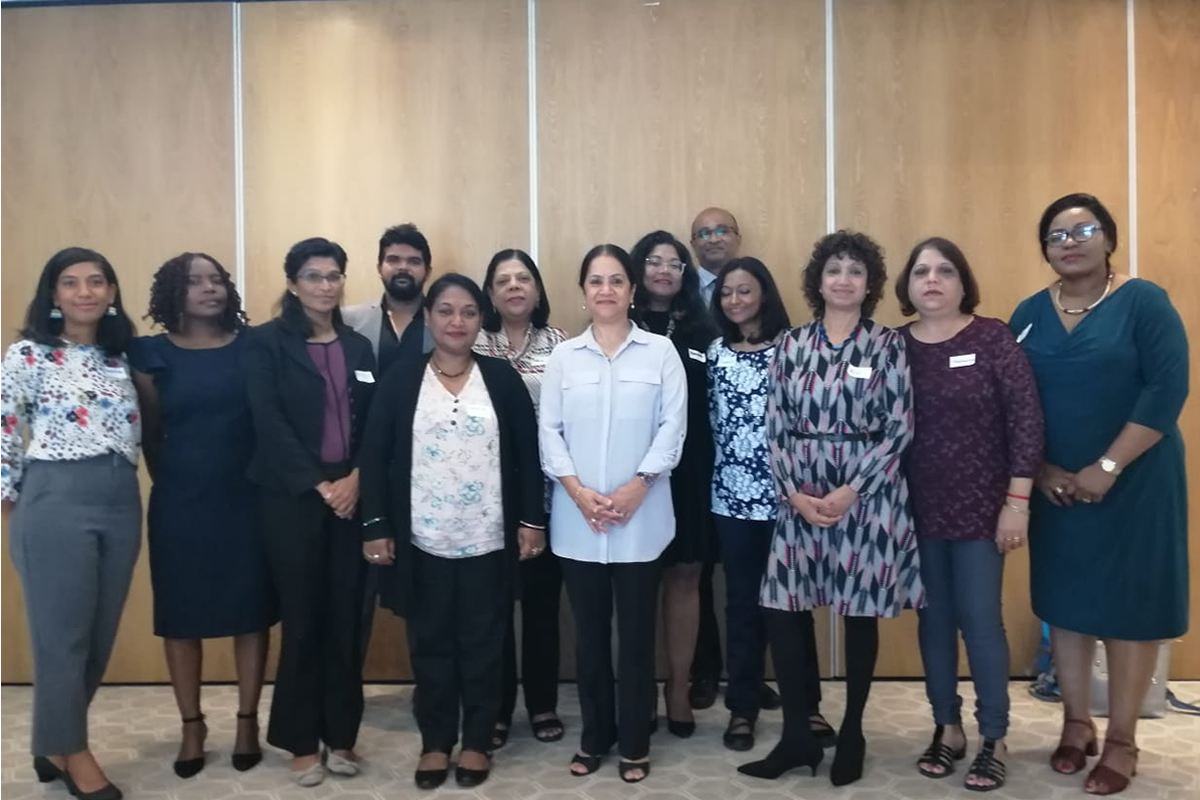
The Women's Rights Unit of the Centre for Human Rights, University of Pretoria, in collaboration with the Ministry of Gender Equality, Child Development and Family Welfare, Mauritius, organised and facilitated a national meeting on state reporting on the African Charter on Human and Peoples’ Rights (African Charter) and the Protocol to the African Charter on Human and Peoples' Rights on the Rights of Women in Africa (Maputo Protocol) for Mauritius. The workshop took place at the Holiday Inn Hotel in Port Louis, Mauritius from 6 to 9 May 2019.

The Centre for Human Rights, University of Pretoria is seeking to recruit an experienced consultant with knowledge of human rights, particularly women’s rights and familiarity with the African Human Rights framework. The consultant is expected to develop a State Party report to the African Commission on Human and People’s Rights (African Commission), which comprises Part A on the African Charter on Human and People’s Rights (African Charter) and Part B on the the Protocol to the African Charter on Human and Peoples’ Rights on the Rights of Women in Africa (Maputo Protocol) for Liberia.
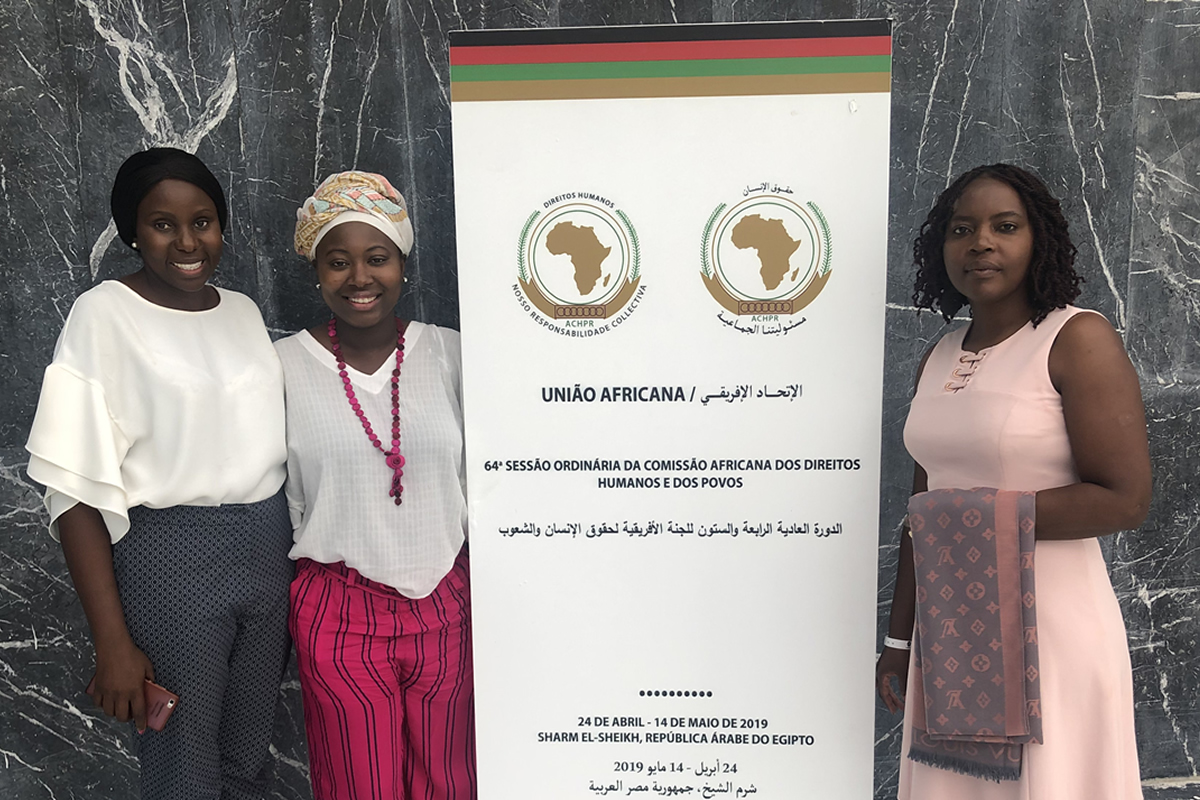
On Sunday 28 April 2019, the Special Rapporteur on the Rights of Women in Africa (SRRWA), Commissioner Lucy Asaugbor hosted a panel discussion on State Reporting Obligations and Guidelines to Reporting under the Maputo Protocol which the Centre participated in during the 64th ordinary session of the African Commission on Human and Peoples' Rights which is currently been held in Sharm El Sheikh, Egypt from 24 April to 14 May 2019.
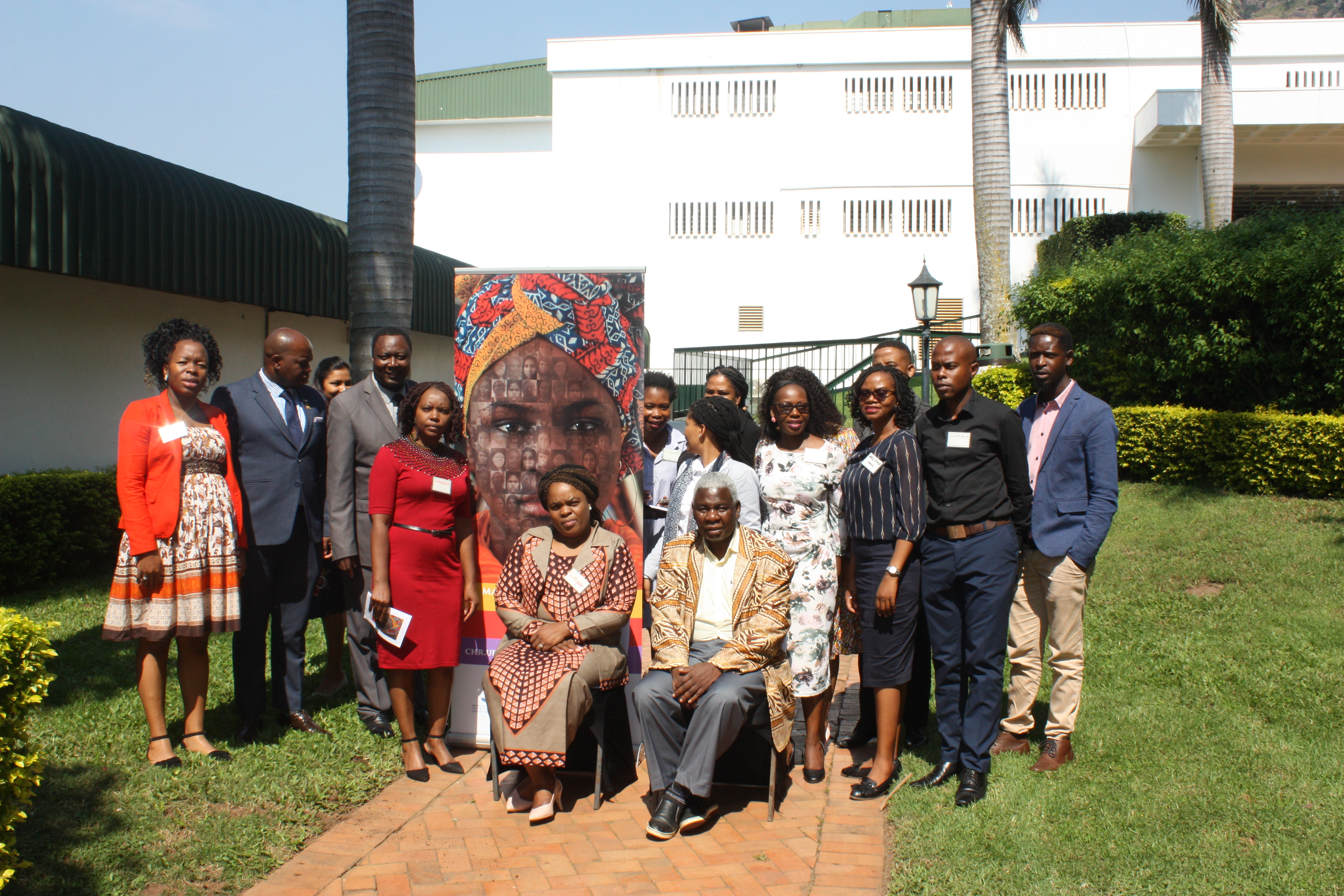
The Centre for Human Rights, University of Pretoria, in collaboration with the Eswatini Ministry of Justice and Constitutional Affairs, organised a state party reporting workshop on the African Charter on Human and Peoples’ Rights (African Charter) and the Protocol to the African Charter on Human and Peoples’ Rights on the Rights of Women in Africa (Maputo Protocol). The workshop was held in Eswatini from the 15 to 17 April 2019.
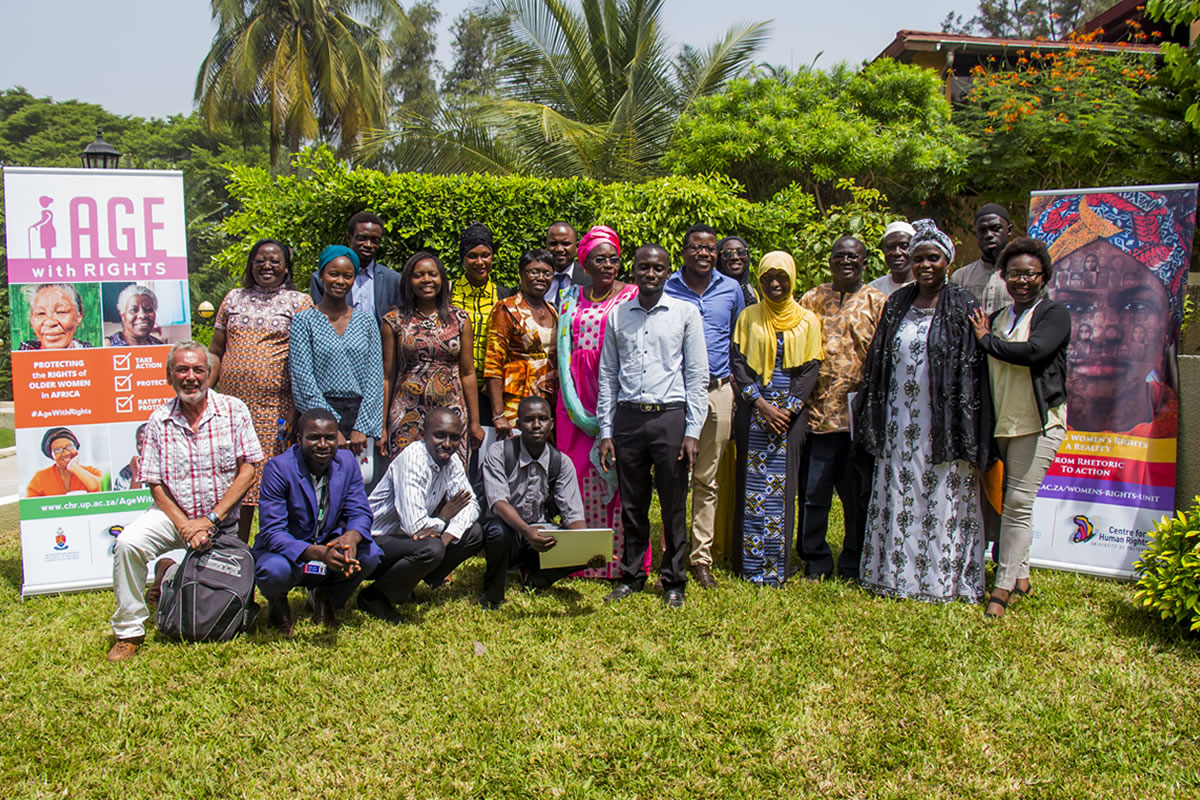
The Women’s Rights Unit of the Centre for Human Rights was involved in various activities at the 63rd ordinary session of the African Commission on Human and Peoples' Rights which is currently been held in Banjul, The Gambia from 24 October to 7 November 2018. The session was preceded by the NGO Forum and 37th African Human Rights Book Fair, which took place from 20 to 22 October 2018.
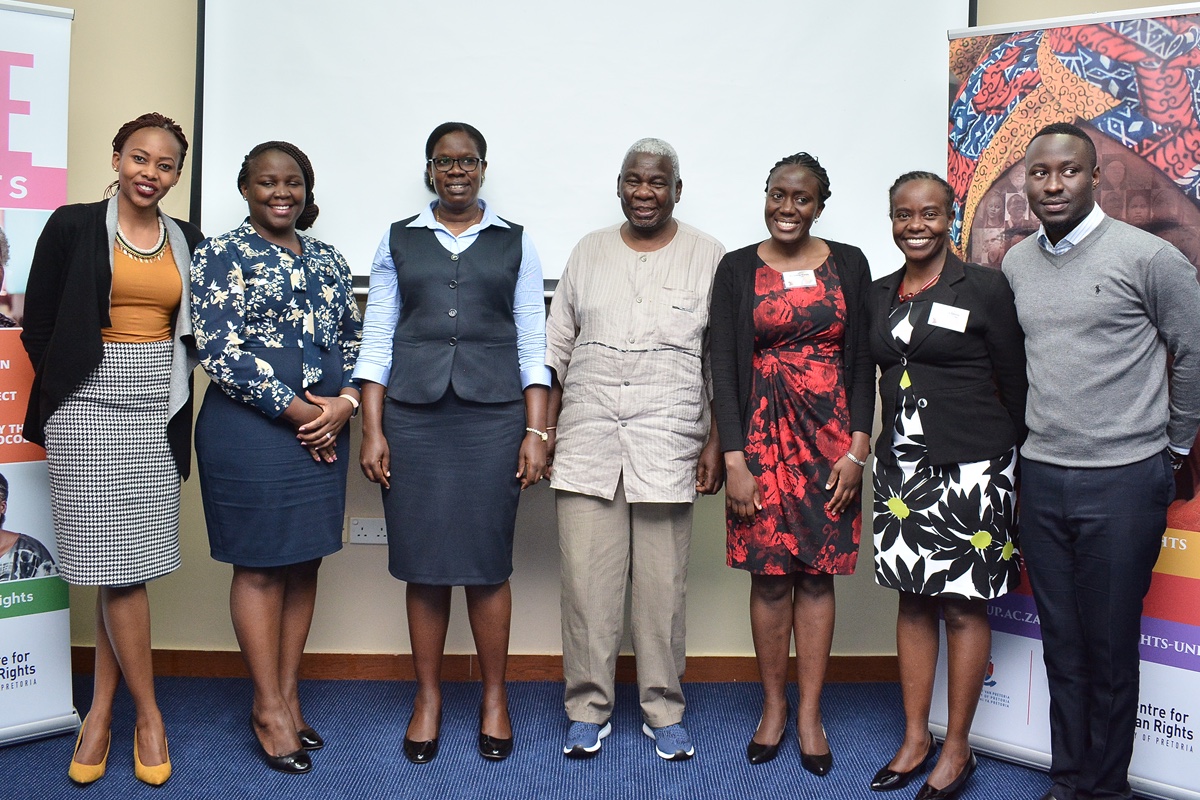
On Friday, 19 October 2018, there was a one-day technical support meeting for stakeholders from Uganda. The meeting was organised jointly by the Ministry of Justice and Constitutional Affairs and the Centre for Human Rights. The meeting was held at the Protea hotel, Entebbe. Participants for this meeting were drawn from Government ministries, National Human Rights Commissions and civil society in Uganda. Participants were also members of a task team that had been set up for the purposes of drafting state reports on all the treaties that Uganda is party to. The meeting was earmarked specifically to offer technical support to Uganda's current draft report as part of the state's efforts to fulfil its reporting obligations under the African Charter and the Maputo Protocol to the African Commission.
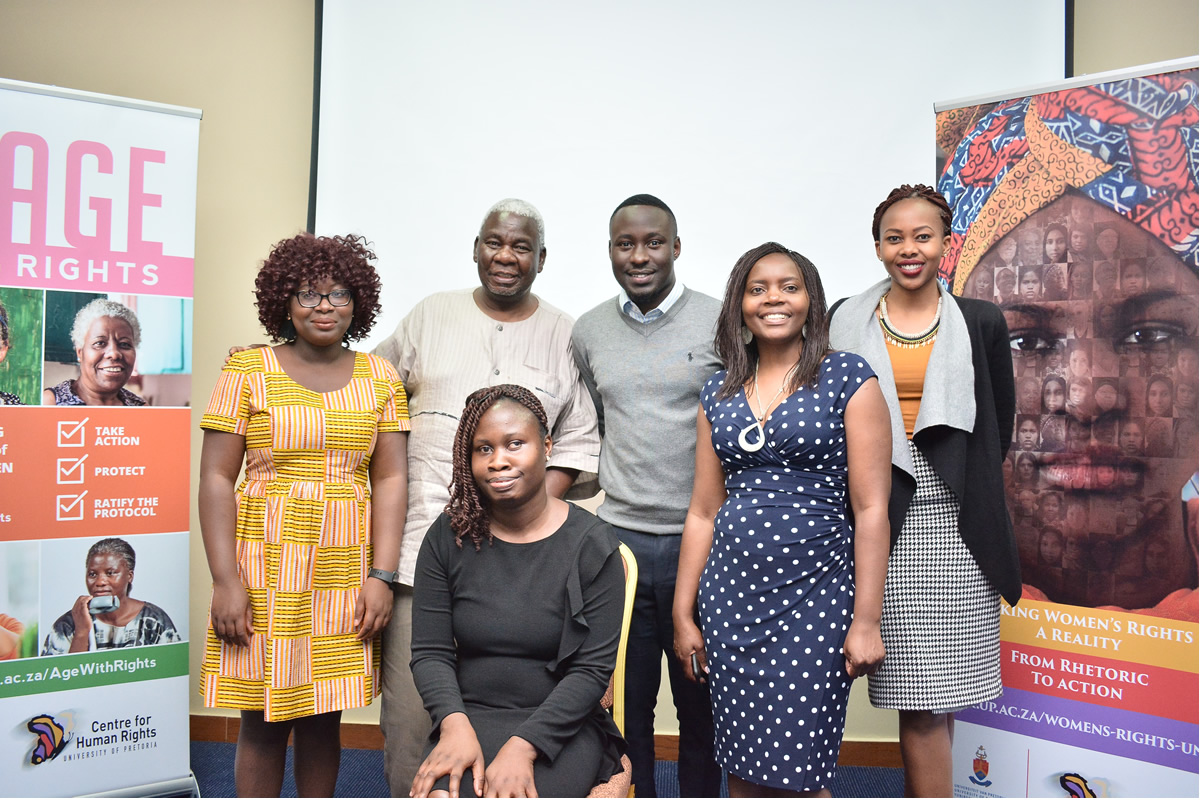
From Tuesday, 16 October 2018 to Thursday, 18 October 2018, the Women's Rights Unit of the Centre for Human Rights organised and conducted a regional state reporting workshop on the African Charter on Human and Peoples Rights (African Charter) and the Protocol to the African Charter on Human and Peoples Rights on the Rights of Women in Africa (Maputo Protocol) for four African countries namely, Uganda, Kenya, Ethiopia and South Sudan. The workshop was organised and hosted in collaboration with the Ministry of Justice and Constitutional Affairs, in Uganda. It was held at the Protea hotel, Entebbe.
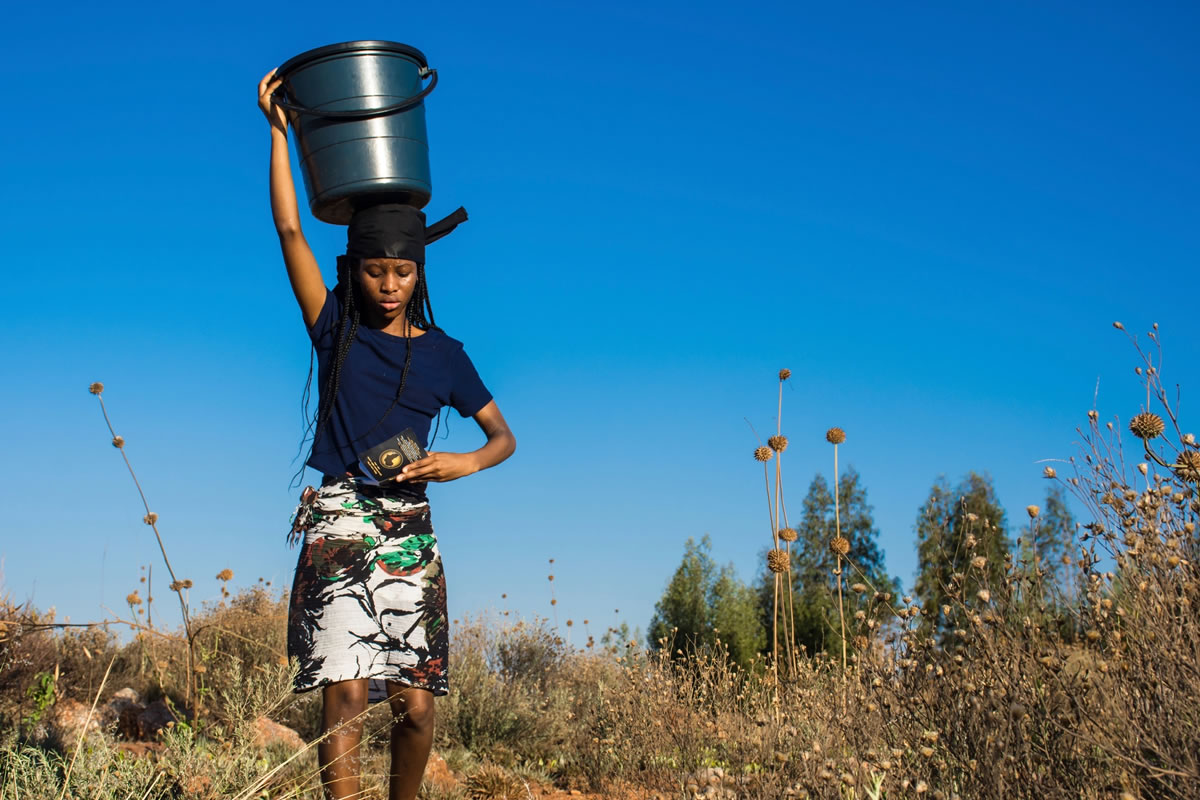
Today - 1 October 2018, the Centre for Human Rights, joins others in commemorating the International Day of Older Persons. The theme of this year’s observance, “Celebrating Older Human Rights Champion,” points to the leading role of older persons in championing human rights. The International Day of Older Persons is representative of a global push to prioritise, promote and protect the rights of ageing populations across regions. Current global trend shows an increase in the overall number of people who are living beyond the age of sixty. The 2016 World Health Organization (WHO) Global Report on Ageing posits that between 2000 and 2050, the proportion of the world’s population that is 60 and above will double from 11 per cent to 22 per cent. By 2050, 2 billion of the world’s population will be 60 or older. Thus, it is critical that we focus on addressing the specific and unique needs of individuals as they grow older.
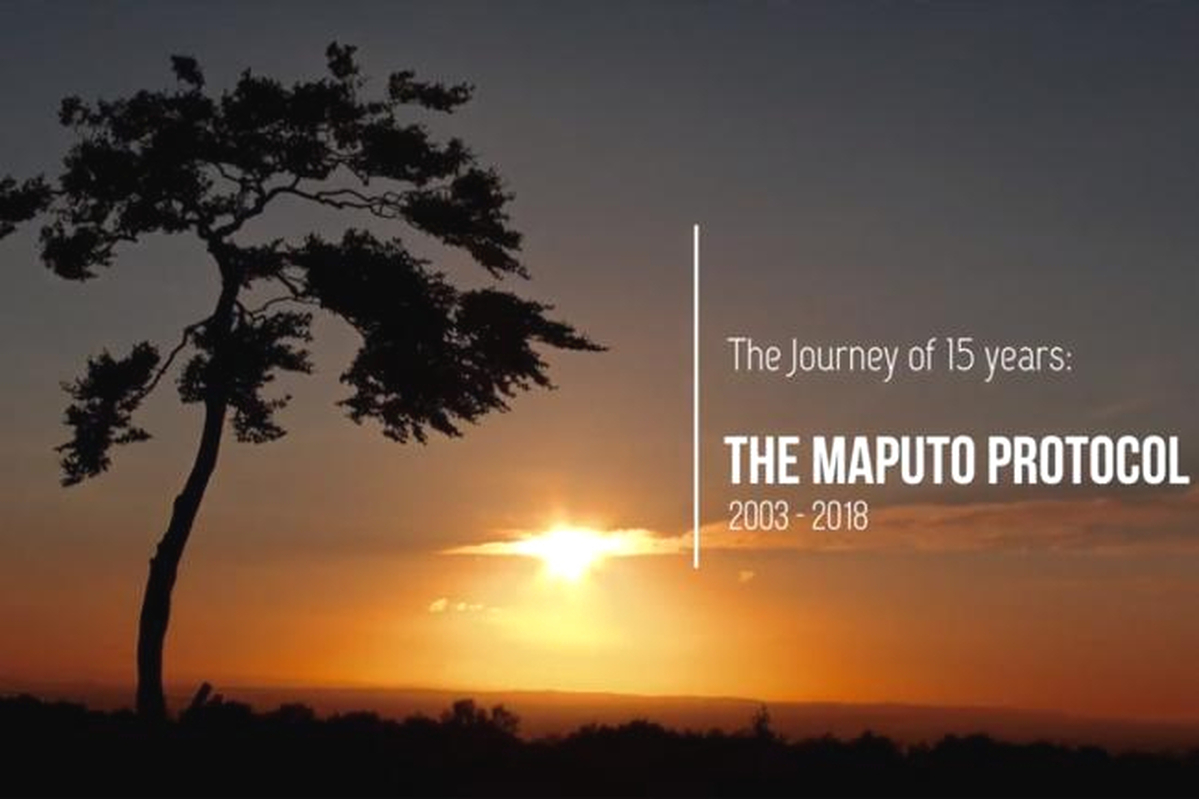
Inequality can be done away with only by establishing a new society, where men and women will enjoy equal rights, resulting from an upheaval in the means of production and in all social relations. Thus, the status of women will improve only with the elimination of the system that exploits them….” Thomas Sankara
Since Sankara uttered these words, the African continent has made some strides towards eliminating the system that exploits and discriminates against women. One of these steps is the adoption of the Protocol to the African Charter on Human and Peoples’ Rights on the Rights of Women in Africa (Maputo Protocol) on 11 July 2003 in Maputo, Mozambique, it later came into force in 2005.

An essential component of the Moot week is the one-day human rights conference. Organised in partnership with the University of Mauritius in Mauritius on 21 September, the conference was themed: the Maputo Protocol and poverty alleviation: towards the realisation of women's rights in Africa.
The conference was opened by Judge Lucy Asuagbor, Commissioner and Special Rapporteur, on the rights of women in Africa of the African Commission on Human and Peoples’ Rights and Prof Frans Viljoen Director of the Centre for Human Rights.

List of countries which have signed, ratified/acceded to the
Protocol to the African Charter on Human and People's rights on the rights of women in Africa. Mauritius still listed as the last to ratify ![]() Download latest list of countries that have ratiefied
Download latest list of countries that have ratiefied
